

Croatia travel requirements 2024: What travelers need to know
We aim to keep this post updated about Croatia travel in 2024 with official Croatia travel restrictions, requirements, and health and safety guidance. Our goal is to help you make informed decisions so you can travel confidently, safely, and responsibly in this new post-pandemic world of ours.
We lived and worked from Croatia in winter of 2019 and loved it.
As restrictions vary based on the traveler’s citizenship, we will focus primarily on rules affecting U.S. citizens.
At the end of the post, we share on-the-ground perspectives from local residents and travelers to Croatia so you can get a sense of what it’s really like.
Last update: October 2023. Originally published: November 2020.
Disclosure: This post contains some affiliate links. If you make a purchase through one of our links, we may receive a small commission, at no additional cost to you.
* Get our free Post-Pandemic Travel Checklist *
Table of Contents
Can US citizens travel to Croatia? Can I travel to Croatia right now?
Can Americans travel to Croatia? Yes, travelers from the United States can enter Croatia for tourism. As of May 2022 , Croatia travel restrictions and entry requirements related to COVID-19 have been removed.
Travelers can visit Croatia without any testing, vaccination, or quarantine rules.
Visitors from over 60 visa-exempt countries , including the U.S., will soon be required to have a European Travel Information and Authorisation System (ETIAS) travel authorization to enter Croatia and other European countries . The start date has been delayed from 2024 to 2025.
See details about ETIAS here
Quarantine rules in Croatia: What happens if I get Covid?
Foreign travelers are not required to quarantine upon arrival to Croatia.
Travelers who test positive for Covid while in Croatia can get in touch with a local epidemiologist . Call 113 (from a Croatian number) for general advice about COVID-19.
As of May 2023, there are no longer quarantine requirements for those who test positive. However, they are advised to avoid large gatherings. Self-isolation for five days, followed by ten days wearing a mask, is recommended for those who come into contact with the elderly, chronically ill, immunocompromised people, and pregnant women.
People who were in close contact to those who tested positive are not required to quarantine. They are, however, asked to wear mask for 10 days, to self-test on the fifth day, and to avoid large gatherings especially among people who are at increased risk.
Croatia Vaccine Passport Requirements to Enter Large Gatherings
You might be wondering: Do I need a vaccine certificate or Covid test to enter restaurants, accommodations, or attractions in Croatia?
Currently, a vaccine certificate or Covid test is no longer needed to enter accommodations, businesses, attractions, or attend large gatherings in Croatia.
Can Americans travel to Croatia in April 2024? Can US citizens travel to Croatia this Spring?
Croatia travel in April is open for US citizens. Please read on for details and check back for updates.
What is it like to fly to Zagreb ZAG, Split SPU, or Dubrovnik DBV airports right now? Croatia Airlines reports that guests are no longer required to wear face masks on flights.
Disinfecting systems and health screenings have been implemented at the airports.
Do Americans have to quarantine when traveling to Croatia? As of May 2022, travelers are not required to quarantine upon entry in Croatia.
For travelers who test positive with Covid-19 while in Croatia, please see above for details.
Does Croatia check COVID-19 symptoms of incoming travelers? Basic health screening procedures may be in place at the airports in Croatia.
Does Croatia require a negative Covid-19 test for American travelers? No. A negative Covid-19 test is no longer required to enter Croatia.
Does Croatia require a proof of Coronavirus vaccine for American travelers? No. A proof of Coronavirus vaccine is no longer required to enter Croatia.
Do I still need to provide a negative Covid test or quarantine if I have been vaccinated? No. A negative Covid test, quarantine, and proof of vaccination is no longer required to enter Croatia.
Is a booster shot required for travel to Croatia? No. A booster shot is not required to enter Croatia. There is no set period of expiration for booster shots.
What Covid testing options are available for travelers in Croatia? PCR and/or antigen tests are available for travelers at COVID-19 Testing Locations in Croatia .
As of July 2022, PCR tests cost HRK 276.56 (approximately 37.55 USD) if referred by a doctor or HRK 390 (approximately $53 USD) if not referred by a doctor. Antigen or rapid tests, on the other hand, cost approximately $20 USD.
What healthcare options are available to travelers in Croatia who get the virus? Croatia hospitals and clinics are open. However, if you get sick in Croatia, medical resources may sometimes be limited and treatment will be at your own expense.
Local COVID-19 PCR tests in Croatia are not covered by Croatian Health, unless referred by a Doctor or epidemiologist.
For travel insurance that covers Covid, check out Nomad Insurance by Safety Wing >
What service businesses and restaurants are open in Croatia? Restaurants are open for indoor and outdoor dining. Museums, attractions, and other businesses are also open.
What public gatherings are allowed in Croatia? Public and private gatherings or events are allowed in Croatia.
Are face masks required in Croatia? Face masks are not required except in hospitals and care centers.
Are buses running in Croatia? Public transportation is available as usual throughout Croatia.
Will Croatia impose new Covid restrictions? What’s next is difficult to predict. Historically, Croatia has imposed COVID-19 restrictions when the health care system is under strain, which means when the number of hospitalizations and patients on ventilators rise to unsustainable levels.
How has the Coronavirus impacted Croatia?
The Croatian Government declared the epidemiological situation under control in early June 2020 with almost no new cases being reported for several weeks. However, the country saw a spike in cases in Fall 2020. This prompted the government to implement additional measures to slow the spread of the virus and support its health system.
Croatia, which is highly dependent on tourism, reopened its borders in July 2020. Despite this, the economy still struggled with a substantial increase in unemployment.
Croatia’s vaccination program began slightly before the New Year 2021. Over half of the population have been fully vaccinated.
For the current situation in Croatia, including: total COVID-19 positive cases; total cases in Croatia; and COVID-19 testing in Croatia, please see the Croatia Department of Health site .
What should you pack for safely traveling in Croatia?
😷 Face Masks – Face coverings are recommended in public places and may be required in certain spaces. Find N95 masks at Bona Fide > or designer options at Vida >
💊 Medicine – Bring enough prescription and over-the-counter medication for your entire trip to avoid trips to the clinic.
💳 Vaccine Card Holder – Protect that paper CDC card when traveling abroad (if your country doesn’t offer a digital version). Get a simple plastic protector > or Vegan leather clippable > or Leather passport + card combo holder >
👃 Covid self-test – The most studied rapid antigen self-test with FDA emergency authorization. NOT valid to enter countries. Use for your own peace of mind. Order from CVS > or Walmart >
💧 Sealed water bottle – Make sure your reusable water bottle has a lid that’s not exposed to the air. We use one of each of the following: Shop insulated water bottles with protective lid > Shop water bottles with purification filter and protective lid >
✈️ Travel insurance that covers Covid – We’ve started using Nomad Insurance by Safety Wing for affordable evacuation, international medical, and trip coverage.
What do Croatia locals and recent travelers say about visiting Croatia now?
What is it like to visit Croatia right now? It’s our goal to provide regular updates here from real people on the ground, to help potential visitors know what to expect.
The following are subjective opinions only. Official travel guidance can be found above.
September 2023 – Steven Jepson of The Thorough Tripper , American traveler “We are currently in Dubrovnik Croatia for one week as part of a 6 week/6 country European trip. Dubrovnik supposedly has the most overtourism in all of Europe, and we are seeing it first hand. I thought if we came at the end of September, it wouldn’t be too bad. It’s bad. So many people…
I have yet to see the word COVID written anywhere here. There doesn’t seem to be any restrictions whatsoever.”
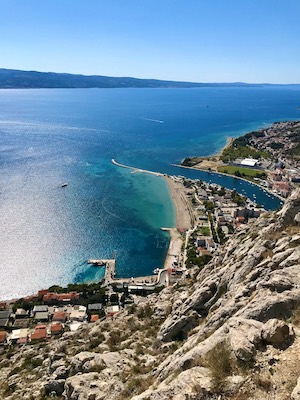
June 2023 – Coni from Experiencing the Globe , Croatian resident: “Short and sweet: Croatia is completely open, without any restrictions of any kind. Everything is back to pre-pandemic normal.
All attractions and tourist infrastructure (hotels, restaurants, souvenir shops, etc.) are fully working. Testing facilities are plentiful, and private clinics are readily available in case of need.
Do keep in mind that Croatia is a very popular summer destination, and with no restrictions in place, you’ll find crowds everywhere in the coast and known national parks.”
January 2023 – Gabi of Under Flowery Sky , Croatian resident: “Croatia currently adopts the Euro [as currency in place of kuna] and this stimulates prices going up comparing to the past. The hostels are still full even in January and prices affordable.
Most of local attractions are open. Healthcare is easily accessible, specially in the cities. Masks are not requiered anymore.”
September 17, 2022 – Arianna of Extra Mile Project : “I spent 9 days in Croatia in September 2022 and traveled to Zagreb, Hvar, Split, and Dubrovnik by train. Life seemed to be back to normal. As an EU citizen, I easily flew into Zagreb without any travel restrictions (no testing or contact tracing required).
Masks were recommended in the airport and on public transportation but very few people were wearing one. Some museums still used a time slot-based booking system to avoid overcrowding, so I’d recommend buying tickets in advance. However, September didn’t seem to be a busy month and I was always able to find available tickets on the spot. Most of the attractions had signs at the entrance asking visitors to sanitize their hands and measure their temperature, but nobody was really checking.”
August 2022 – N.h., expat: “My cousin arrived on Sunday with EasyJet from Gatwick. She said check -in and security took 50 minutes. Her flight was delayed by 1 1/2 hours. Everything in Split was quick and easy. The new terminal is great and everything runs pretty smoothly.”
May 28 2022 – Gloria from mumsinvited.com: “In May, I flew into Croatia for a 4 day work conference. It was a fantastic experience. I didn’t experience any travel restrictions coming from the UK. To my knowledge, there wasn’t any contact tracing or testing. I didn’t even have to take a Covid test before travelling or after my arrival. There weren’t any long queues or extra crowded spaces.”
April 16, 2022 – Third country national: “ A friend (US Passport) arrived in Split 1 week ago today on a direct flight from Dublin (where she is currently living). She was asked for vax/test/recovery. She doesn’t qualify for EU COVID Cert, so provided CDC card with all 3 jabs. That’s what was asked of her, but current rules do seem to indicate she shouldn’t have needed to provide anything.”
February 16, 2022 – Kathleen O., American nomad: “Split, Croatia is returning to normal life. Local restaurants are open at full capacity (although many are closed simply because it’s outside of the tourist season), buses and ferries are running, and it looks likely to be a record summer season coming. Spring is my favorite time to visit Croatia and with cases dropping every day, it’s a good time to plan a trip.”
January 20, 2022 – Marty, Expat in Croatia: “My wife and I are halfway through a 3 month stay in an Airbnb next to the Riva in Split, Croatia. We have felt very safe as far as any Covid concerns. Split is close enough to take side trips, in fact we just returned from a week in Kotor, Montenegro and Mostar, Bosnia [crossed Croatia land border]. We also traveled to Dubrovnik, which we recommend seeing. Here in Split, Croatia it is easy to get a Covid test if needed. They also allow non-Croatians to get a vaccine, in fact we were able to get our Pfizer booster shot. Since we are here in the off season some restaurants and shops are closed, but there is still lots to choose from. When we were here in October everything was open. They usually don’t ask to see your vaccine card to go inside to shop or eat.”
December 20, 2021 – Kathleen of My Lonesome Roads , American digital nomad: “I am living [in Croatia] for the winter while working online. Most events are still happening, like the Christmas markets, and shops/restaurants/bars are open at full capacity here in Split. There are almost no tourists here which is typical for the winter, so prices are reasonable and you can get a taste of local life.
There are very few restrictions in place, but testing is widely available and inexpensive. Vaccination rates are very low, but the healthcare quality is good. No test or vaccine is needed for most activities.”
October 2021 – Dana, American tourist: “As part of a Mediterranean cruise with Holland America in October, 2021, we visited Zadar and Dubrovnik for one day each. Crowds were minimal and COVID restrictions virtually non-existent. That said, I recommend having a mask at the ready should the need arise. No one asked for vaccination proof at any time. Restaurants were plentiful and open. As noted, crowds were few and seating at bars and restaurants was easy to find.”
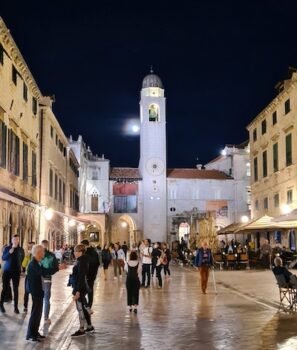
October 2021 – Victoria C., Scottish traveler: “We went for a family holiday to Dubrovnik, Croatia for 10 days in October 2021. Everyone we met were very welcoming and we didn’t have any bad experiences All the local attractions were open, tours were taking place. Restaurants and bars were open. Some were closed due to it coming to the end of the season. We were never asked for any proof of vaccines or tests in town. We had our temperatures taken when we rode the cable car that was it. Masks were worn by most people indoors at supermarkets, shops etc. We didn’t find it overly busy and never really had to wait in any queues.”
September 2021 – Jenn, CocktailsAway.com : “My husband and I spent a week in Croatia, Dubrovnik and Stari Grad (on the island of Hvar) celebrating our 20th wedding anniversary. If you are vaccinated, you will find visiting Croatia fairly easy. All restaurants and bars are open. Tours, activities, and businesses are operating. There is a required form for tracing that needs to be filled out before arrival but outside of immigration and the hotels, no one checked our vaccine card. While everything is open, some businesses haven’t survived the pandemic so it’s wise to check ahead.”
September 9, 2021 – A., UK visitor: “I am currently in a quarantine hotel in Rovinj due to catching covid in Croatia, so I thought I’d share my experience with this so that anyone who wants to know the procedure is aware. I took my lateral flow in our hotel room ready to go back to the UK the next day but it came up positive. We rang [our travel agency] so that they could change our flights (package holiday included flight change for free), we rang the hotel reception on Istra who told us we could stay in the room we were in to isolate and that they would bring us up food for each meal. About an hour later when we’d ordered food and were settled, they rang us and said your boat will be here in half an hour. We were very confused as they just told us we could stay where we are we then had to eat and pack up our whole room in half an hour… We got on a private boat and there was a private car waiting for us that took us to Villas Rubin resort. The lady who greeted us here is lovely and very helpful if we need anything. The room is a decent size with two balconies and they drop us off three meals a day in a crate outside. We get a carton of juice each, bread rolls, fruit, salad and a big meal so can’t complain at all about the food. We have to pay at the end of our stay £60 per person per night, then our StaySure insurance will pay us back. I’ve seen lots of people say Dubrovnik has dealt with [this kind of situation] really badly, but we seem to have got a good hotel! We’ve been told we can’t leave or go home until we are negative. I’m testing daily so if we come back negative early we get to go home. ”
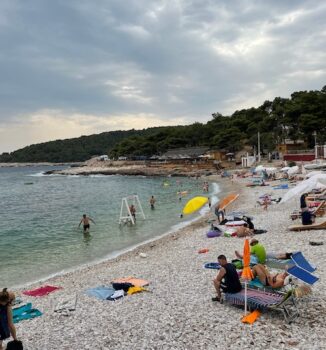
August 2021 – Malek , Egyptian Traveler: “I spent 3 weeks in Croatia with the wifey. People are super helpful. They welcome you help you and try to give you the best advice. when we had a wrong booking on a bus, the other travelers and some locals put the money for us to keep our journey till the next stop and the ATM. Everywhere you are asked for mask and covid passport.”
July 2021 – M.M, American visitor: “I was in Dubrovnik Croatia for 3 weeks. The tourist population was about half of what we anticipated. Though the city is small and few tourists still make it feel crowded, I would definitely recommend going to Dubrovnik now, I can’t imagine how crowded it is without COVID. All restrictions are being followed by locals and visitors. Testing was easy and quick for COVID and food service was exactly what you get in the US, clean and masked.”
June 2021 – Martina of PlacesofJuma , Austrian Digital Nomad: “ The current situation in Croatia is very relaxed. Restaurants and cafes are open, the beaches are quiet and Covid seems light miles away. Locals are happy about every visitor, the atmosphere is really good and the room prices are still really cheap! Keeping distance, hand washing and wearing a mask is followed. Life takes place mainly outdoors, which also reduces the risk of infection. Unfortunately, I don’t know whether the locals get tested and how often. However, many people, especially the elderly and those who work in tourism, have already been vaccinated. Larger hotels also have fantastic hygiene concepts, staff is wearing mask and some hotels offer free covid-tests to travelers.”
April 2021 – Kevin Macadam, British Digital Nomad: “ We moved to Croatia for one year on the 1st March 2021. Arriving into Croatia was fine and we travelled with a dog and cat. Yes, Croatians are welcoming tourists however Covid cases are rising in Croatia so unless you have been vaccinated then I would advise against travelling here. People are wearing masks and testing is available, however, they have a low supply of vaccines at the moment. Tourist attractions are open and restaurants are open until 20:00, however this can differ from county to county.”
Planning a trip to Croatia?
Check out our other Croatia travel resources:
– What to do in Zadar Croatia on a Budget + Walking Tour Map – 7 day Croatia Road Trip Itinerary: Dalmatian Coast in Winter – One Day in Zagreb Croatia Layover Guide – Intentional Travelers – Best Day Trips from Zadar Croatia – Intentional Travelers
If you have questions or updates about travel to Croatia during the Coronavirus crisis or post-pandemic, please let us know in the comments below.
~ Pin this post for later or share with friends ~
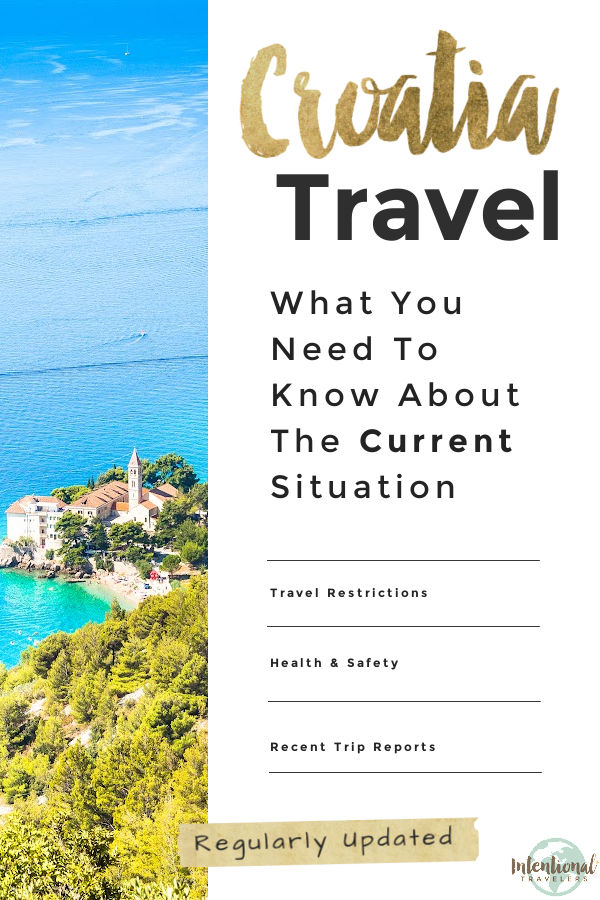
Disclaimer: Please note, travel restrictions change frequently. Readers must take responsibility for verifying information through official sources like the State Department and CDC, in respect to their specific situations. No responsibility can be accepted by Intentional Travelers for action or inaction as a result of information provided through IntentionalTravelers.com. Any information provided here is issued as general information only.
Similar Posts

Rome Food Tour – A Progressive Meal Through The Jewish Quarter With Bitemojo
We’re excited to tell you about a new and exciting way to enjoy a food tour in Rome. With the help of your smartphone, you can experience a progressive meal through secret corners of Rome, at your own pace. You get the benefits of a curated experience with local insights, without the cost or time…

Top 5 Things to Do In Bruges
Bruges (also known as Brugge) in Belgium is one of the most charming cities in Europe. We’ve found that it is relatively unknown compared to major destinations like Paris, London, or Rome in the minds of the typical North American traveler. Nevertheless, the crowded streets of the city center are proof that tourism is booming and it’s not going…

Best Beaches in Tuscany Italy
Did you know there are beautiful beaches in Tuscany, Italy? When you think of Tuscany, it probably doesn’t bring to mind a beach vacation. But in addition to the rolling hills, wineries, olive groves, and medieval villages, this region of Italy also includes a beautiful coastline! We’ve been coming back to Tuscany’s Etruscan Coast regularly…
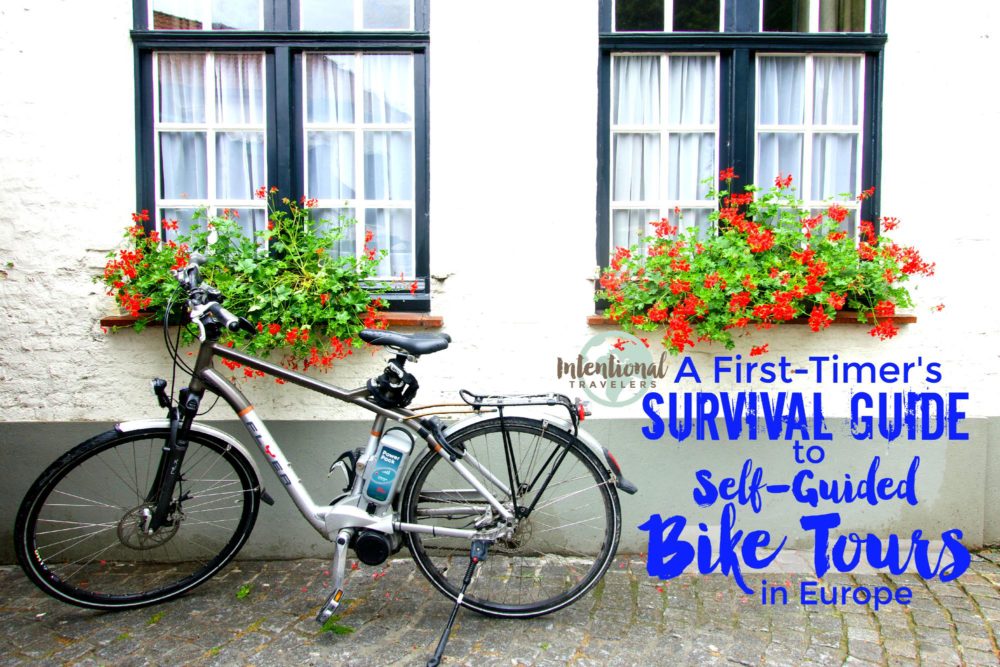
A First Timer’s Survival Guide to Self-Guided Bike Tours in Europe
We recently did a one week self-guided bike trip from Bruges to Amsterdam through the towns and countryside of Belgium and The Netherlands. It was our first biking tour, and we really enjoyed the balance of pre-arranged logistics with the flexibility and autonomy to take each day at our own pace. You can read more about the…

Travel Seasons: The Best Time to Visit Europe
For a destination that offers everything you could wish for – the sea and mountains, cultural treasures, the countryside and urban life – few destinations beat the Old Continent: Europe. When to Visit European Countries With so many different countries and climates, it’s not always easy to know the best times to visit a particular…

Self Guided Walking Tour Itineraries for 3 Days in Lisbon
If you’re visiting Portugal’s capital, we think 3 days in Lisbon should be your minimum to really enjoy the city. We had the opportunity to stay and explore Lisboa for a full month and absolutely loved it. To help you plan your Lisbon trip, we narrowed down the best sights to a 3 day itinerary…
15 Comments
Thank you for this very helpful post!! My husband and I are hoping to visit Croatia in late March for our honeymoon. Are we allowed to enter Croatia if our connecting flight is coming from Madrid? USA to Croatia via Madrid. I’ve seen some conflicting information and don’t want to take a chance
Thanks for visiting our blog, Emily. At this time, the official Croatia website says arrivals are allowed from E.U. countries (which would include Spain) and “third country” tourists (Americans), as long as the appropriate documents are provided.
We are not tracking what additional requirements in Spain might be for passengers transiting through their airports, however, so you would have to check that separately. As I’m sure you’re aware, restrictions can always change between now and March, so I think you’ll likely be fine but unfortunately nothing is 100% guaranteed these days.
Hi, I am a UK resident currently visiting Turkey for 2 weeks, however, would like to visit Croatia on the way back to the UK and wanted to know if travellers from Turkey are not allowed to enter Croatia. I have received both covid jabs in the UK two months ago. Also, if travel is allowed, what are the requirements for my 11 and 13 year olds.
Thank you Kind regards
Thank you for visiting our blog. In our attempt to keep this free article accurately updated, we have limited our focus to specific travel scenarios. For other situations beyond what we cover here, I recommend checking official guidance on the Croatia ministry website or work with a travel agent who can ensure your trip needs are met.
I read that there is a mandatory 10-day quarantine for Eu-citizens. Can someone tell me if this quarantine must be held in a hotel or somewhere else?
Because the requirements vary based on citizenship and transit route into the country, we’ve been focusing on those that apply to U.S. travelers. We recommend checking Croatia’s official requirements here: https://mup.gov.hr/uzg-covid/english/286212 It’s a good question about the quarantine location. The information provided online is mostly about protocols to bypass the quarantine requirement, which most EU citizens should be able to do. That said, I did see the following mentioned: “Travelers may be ordered to self-isolate or spend up to 14 days in official government quarantine facilities if deemed necessary to prevent the spread of COVID-19. Placement in quarantine is at the expense of the traveler.”
Thanks Michelle C
Hi, I am booked to visit Omis with my family in late June. I have 2 young children 8 and 2 years old. Do children have to have the negative PCR tests as well as the adults?. Thanks Tim
It’s a good question and not easy to find. But I finally found this on the official website: “Children under seven years of age traveling accompanied by a parent / guardian are exempt from the obligation to present a negative test result and to self-isolate if the parents / guardians have a negative PCR or RAT test result, i.e. if they have a certificate of vaccination against COVID-19 or proof of having recovered from COVID-19.” Enjoy Omis – it is a beautiful spot!
We have a trip planned to Croatia 4/29/22 and are wondering how safe it is for us to travel. We are in our 70’s in good shape though I am high risk.
Thank you for visiting our blog. We hope to have another on-the-ground update from a recent traveler to Croatia soon. However, assessing travel safety is quite relative and depends on your own risk tolerance. Right now, cases across Europe are high from the Omicron variant. It’s hard to predict what it will be like in April. If you have health risks, it’s probably best to asses that with a medical professional.
Thanks so much for this blog post ! I was wondering how you are getting your information, are you in Croatia now? I am currently in Egypt but want to move on to Croatia soon. I hold a NZ passport and I can’t find any clear information to tell me whether or not I am allowed entry. Can you shed any light on this?
Hi and thanks for visiting our blog. The information for this post is regularly updated by our team as the situation changes; it is based on online research and periodically checking in with locals and recent travelers to Croatia. The entry requirements are admittedly complicated. The official, detailed rules are best found here: https://mup.gov.hr/uzg-covid/english/286212 You can fill out a form on this page to verify your situation. My understanding is that you can enter as a third country national as long as you have a certificate for paid accommodation. Plus a negative test within 48 hours of arrival would be required to bypass quarantine. But of course, I recommend verifying through the official website.
My partner and I are dying to get back out and travel. We were full time traveling before Covid hit and we have since been trapped at home xD
We love the Balkans and the surrounding region so its nice to be reading about it to curb the itch to travel.
Great read 😀
Hi Maria. Thanks for your message. We hear you about wanting to get back out and travel!
Leave a Reply Cancel reply
Your email address will not be published. Required fields are marked *
This site uses Akismet to reduce spam. Learn how your comment data is processed .
- Search Please fill out this field.
- Manage Your Subscription
- Give a Gift Subscription
- Sweepstakes
Croatia Eliminates COVID-19 Travel Entry Rules — What to Know
Previously, visitors had to show proof of vaccination, a negative COVID-19 test, and proof of accommodations within the country to come as well as fill out an entry form online.
:max_bytes(150000):strip_icc():format(webp)/alison-fox-author-pic-15f25761041b477aaf424ceca6618580.jpg)
Croatia became the latest country to eliminate all COVID-19-related entry requirements this week, allowing travelers to visit without any testing, vaccination, or quarantine rules in place.
The European country reverted to pre-pandemic entry requirements on May 1, choosing to not extend the "Decision on Temporary Restriction of Crossing the Border Crossings of the Republic of Croatia," according to the Croatian National Tourist Board . Instead, "entry into the Republic of Croatia is allowed subject to the conditions of entry valid before the COVID 19 epidemic."
Travelers are permitted to enter the country from the air, land, or sea, according to the tourist board.
While there are no pandemic-related rules at the borders, masks are still recommended to be worn on public transportation and in indoor restaurants. Face coverings are only required in health care and social welfare institutions.
Currently, Croatia is averaging just over 690 new cases each day, according to Reuters , which is a significant drop from its peak in January. So far, the country has vaccinated just over 54.6% of its population, according to the Johns Hopkins Coronavirus Resource Center .
Croatia joins several other European countries in either easing COVID-19-related restrictions or doing away with them altogether like the United Kingdom , Sweden , Iceland , and Ireland . Others have rolled back restrictions like the Netherlands , which dropped pre-arrival testing for vaccinated visitors, and Italy , which just lifted its "Green Pass," no longer requiring visitors to show proof of vaccination to visit places like restaurants, bars, and museums.
Travelers who do go to Croatia will find southern Europe's first dark sky community in the town of Jelsa on the northern coast of Hvar, as well as stunning island resorts and palace escapes .
Alison Fox is a contributing writer for Travel + Leisure. When she's not in New York City, she likes to spend her time at the beach or exploring new destinations and hopes to visit every country in the world. Follow her adventures on Instagram .
What to expect when traveling to Croatia this summer as rules are eased

May 4, 2022 • 1 min read
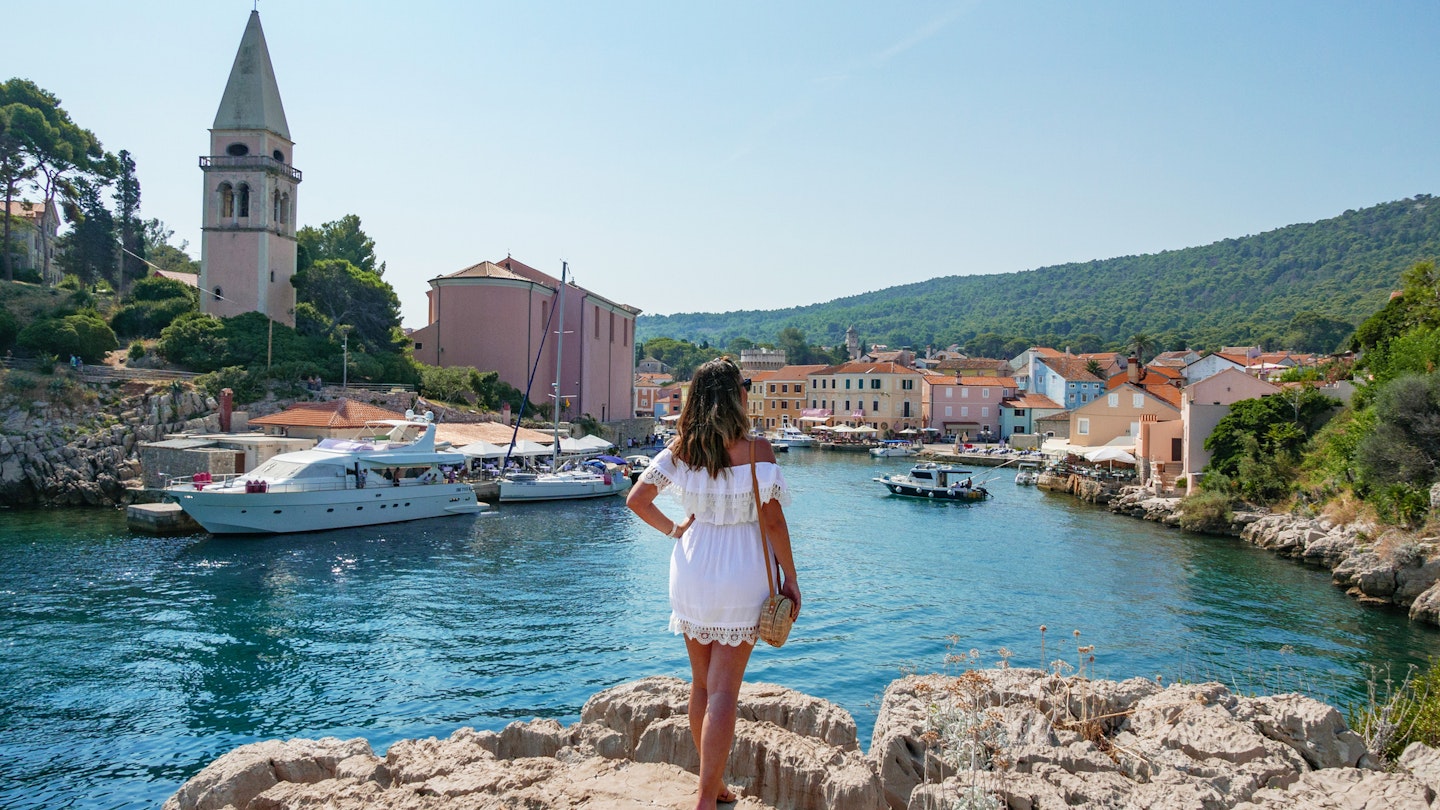
Croatia is reopening to visitors without restrictions © Getty Images
For travelers heading to Croatia this summer, vacations have gotten much easier to manage as the tourism board announced that all remaining pandemic entry restrictions have been dropped.
Following similar measures in other Mediterranean countries like Greece and Cyprus , Croatia has eliminated domestic restrictions and entry rules like the requirement to complete a passenger locator form and to present proof of vaccination or recovery at the borders.
The measures had been in place until April 30 and the government announced this week that they had decided not to extend them.
Do you need a visa to go to Croatia?
“All travelers entering Croatia can now do so under the same conditions of entry that were in force before the COVID19 pandemic, i.e. with valid travel documents ,” the Croatian National Tourism Board said on Tuesday.
Croatia also did away with the mask mandate. Now it's only required to enter healthcare facilities.
How to get around in Croatia
There’s now little sign life was ever curtailed in Croatia over the past two years as domestic measures have been dropped too. Hospitality venues are open and operating at full capacity, festivals have returned, and beaches and museums are already welcoming steady streams of visitors even though the tourism season has yet to get into full swing.
See the best of Croatia with this week-long itinerary
"With a number of new hotels, restaurants, and events confirmed for this summer, Croatia is set for a strong season ahead," Darija Reic, director of the tourist board’s office in the UK, said in a statement.
You might also like:
How to spend a year in Croatia as a digital nomad The 6 most inspiring road trips in Croatia When to go to Croatia
This article was first published April 2021 and updated May 2022
Explore related stories

May 16, 2022 • 4 min read
The policy changes on May 16, but there are still many countries who require passengers to keep masks on during flights.
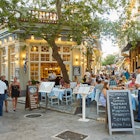
Apr 29, 2022 • 3 min read

Apr 8, 2022 • 4 min read
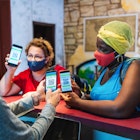
Mar 2, 2022 • 6 min read

Feb 14, 2022 • 2 min read

Feb 3, 2022 • 3 min read
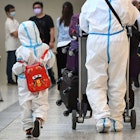
Nov 30, 2021 • 6 min read

Nov 29, 2021 • 6 min read
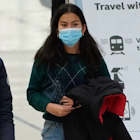
Nov 18, 2021 • 4 min read

Aug 25, 2021 • 4 min read
- Destinations
- Things to Do
- Restaurants
- Art & Culture
- Music & Nightlife
- Los Angeles

Travelling within, into and out of Croatia, as of August 6, 2021
COVID-19-related travel and movement restrictions are still in place in Croatia. Read on to find the latest travel information as of August 6, 2021. For exact details on travelling to and from Croatia, or anywhere, always check directly with airlines, transport providers, and official government authorities.
EU and UK categorisation of Croatia
At the time of writing, Croatia is part green, part yellow on the ECDC's map showing EU travel recommendations during the COVID-19 pandemic.
Updated 🚦 maps are online! These maps aim to support the @EUCouncil recommendation on travel measures in the EU during #COVID19 pandemic. Color-blind friendly map in the next tweet. https://t.co/CcBVx6B0o5 pic.twitter.com/QnTx5kNpSo — ECDC (@ECDC_EU) August 5, 2021
All of Croatia is on the UK's green list at this time.
Traveling to Croatia: Government regulations for ENTERING Croatia
Croatian government site Koronavirus.hr gives the latest update for entering the country:
The Civil Protection Headquarters of the Republic of Croatia has made a decision on a temporary ban and restriction of crossing the border crossings of the Republic of Croatia. The decision takes effect on July 26, and is set to be in place until August 15, 2021. However, in accordance with the guidelines of the competent authorities, exceptions have been made as follows.
"Passengers travelling to the Republic of Croatia from an EU / EEA member state
Passengers coming directly from the countries and/or regions of the European Union, i.e. countries and/or regions of the Schengen area and Schengen associated countries , regardless of their citizenship, will be allowed entry into the Republic of Croatia if they possess a valid EU Digital COVID Certificate. Exceptionally, passengers arriving directly from the countries and/or regions of the European Union, i.e. countries and/or regions of the Schengen area and Schengen associated countries, who do not yet possess an EU Digital COVID Certificate, will be allowed entry into the Republic of Croatia if they have the following:
- negative PCR test result or rapid antigen test result - RAT for SARS-CoV-2, where the RAT test must be listed in the Common list of rapid antigen tests recognised by the Member States of the European Union , published by the European Commission. If the RAT test results were made abroad, the manufacturer and/or the commercial name of the test must be visible. Otherwise, it will not be accepted as credible for entering the Republic of Croatia. The PCR test result must not be older than 72 hours, and the RAT test result must not be older than 48 hours, counting from the time the test was taken until the arrival at the border crossing point;
- certificate that they have received two doses of vaccine used in the EU Member States (Pfizer, Moderna, AstraZeneca, Gamaleya, Sinopharm) not older than 270 days , or a certificate that they have received one dose of the vaccine if the vaccine is administered in a single dose (Janssen/Johnson&Johnson) not older than 270 days, provided that 14 days have passed since they received the single dose;
- certificate showing that they have received the first dose of the Pfizer, Moderna or Gamaleya vaccine, on the basis of which they can enter the Republic of Croatia in the period of 22 to 42 days from receiving the vaccine, or 22 to 84 days from receiving the first dose of the AstraZeneca vaccine;
- certificate showing that they have recovered from COVID-19 and have received one dose of vaccine within six months from contracting the disease, provided that the vaccine was administered less than 270 days from their arrival at the border crossing point;
- positive PCR test result or rapid antigen test result, confirming that the holder recovered from the SARS-CoV-2 virus infection, which was performed in the previous 270 days and which is older than 11 days from the date of arrival at the border crossing point, or a medical certificate of recovery;
- or if they perform PCR testing or rapid antigen testing - RAT for SARS-CoV-2 immediately upon their arrival in the Republic of Croatia (at their own expense), with the obligation to stay in self-isolation until they obtain a negative test result. In case they cannot get tested, they have to self-isolate for ten (10) days.
The following categories are exempt from possessing a valid EU Digital COVID Certificate or from the abovementioned obligations:
- workers or self-employed persons performing essential tasks, including healthcare workers, frontier and posted workers and seasonal workers as specified in the Guidelines concerning the exercise of the free movement of workers during the COVID-19 outbreak provided they do not stay in the Republic of Croatia or outside the Republic of Croatia for longer than 12 hours;
- pupils, students and interns
- seafarers and workers in the transport sector or transport service providers, including heavy goods vehicle drivers transporting goods to be used in the national territory and those in transit only;
- diplomats, staff of international organisations and persons invited by international organisations and whose physical presence is necessary for the functioning of those organisations, military personnel and police officers, as well as humanitarian and civil protection personnel in the performance of their duties;
- persons travelling for family or business reasons, including journalists in the performance of their duties;
- passengers in transit with the obligation to leave the Republic of Croatia within 12 hours from entry;
- patients travelling for health reasons.
The provisions regarding frontier workers apply adequately to other categories of passengers who, due to the nature of their job or occupation, need to cross the state border frequently (e.g. athletes playing for clubs in a neighbouring country). Passengers who represent one of the previously mentioned exceptions are obliged to present credible documentation upon entering the Republic of Croatia in order to prove the reasons for the exemption.
Citizens of EU / EEA member states as well as members of their families travelling to the Republic of Croatia from third countries, i.e. those that are not members of the EU / EEA
Citizens of EU Member States (including Croatian citizens), i.e. Schengen Member States and Schengen associated countries, as well as members of their families and third-country nationals who are long-term residents under Council Directive 2003/109/EC of 25 November 2003 concerning the status of third-country nationals who are long-term residents and persons entitled to reside under other EU directives or national law or who have national long-term visas and are coming from third countries , must present a valid EU Digital COVID Certificate when entering the Republic of Croatia. Exceptionally, the abovementioned category of passengers who do not yet possess an EU Digital COVID Certificate will be allowed entry into the Republic of Croatia if they have the following:
- negative PCR test result or rapid antigen test result - RAT for SARS-CoV-2, where the RAT test must be listed in the Common list of rapid antigen tests recognised by the Member States of the European Union , published by the European Commission. If the RAT test results were made abroad, the manufacturer and/or the commercial name of the test must be visible. Otherwise, it will not be accepted as credible for entering the Republic of Croatia. The PCR test result must not be older than 72 hours, and the RAT test result must not be older than 48 hours, counting from the time the test was taken until the arrival at the border crossing point;
- certificate that they have received two doses of vaccine used in the EU Member States (Pfizer, Moderna, AstraZeneca, Gamaleya, Sinopharm) not older than 270 days, or a certificate that they have received one dose of the vaccine if the vaccine is administered in a single dose (Janssen/Johnson&Johnson) not older than 270 days, provided that 14 days have passed since they received the single dose;
- certificate showing that they have received the first dose of the Pfizer, Moderna or Gamaleya vaccine, on the basis of which they can enter the Republic of Croatia in the period of 22 to 42 days from receiving the vaccine, or 22 to 84 days from receiving the first dose of the AstraZeneca vaccine.
- certificate showing that they have recovered from COVID-19 and have received one dose of vaccine within six months from contracting the disease, provided that the vaccine was administered less than 270 days from their arrival at the border crossing point;
- or if they perform PCR testing or rapid antigen testing - RAT for SARS-CoV-2 immediately upon their arrival in the Republic of Croatia (at their own expense), with the obligation to stay in self-isolation until they obtain a negative test result. In case they cannot get tested, they have to self-isolate for ten (10) days.
- healthcare workers, health researchers and caregivers for the elderly;
- frontier workers (as well as, e.g. athletes as stated in the exceptions for passengers within the EU / EEA);
- workers in the transport sector;
- passengers in transit, with the obligation to leave the Republic of Croatia within 12 hours from entering;
- persons travelling for study purposes;
- passengers travelling for personal / family or business reasons or some other economic reason and do not stay in or out of Croatia longer than 12 hours.
Persons who represent one of the previously mentioned exceptions are obliged to present credible documentation upon entering the Republic of Croatia in order to prove the reasons for exemption from having one of the above-mentioned tests / having to self-isolate.
Third-country nationals
Third-country nationals who are not family members of citizens of Schengen Member States and Schengen Associated States nor are long-term residents under Council Directive 2003/109/EC of 25 November 2003 concerning the status of third-country nationals who are long-term residents and persons entitled to reside under other EU directives or national law or who have national long-term visas, apart from persons referred to in point 1 of this Decision will be granted entry in the Republic of Croatia only in cases of necessary travel. Exceptions to the above-mentioned necessary travel are the following categories: 1. healthcare workers, health researchers and caregivers for the elderly; 2. frontier workers (as well as, e.g. athletes as stated in the exceptions for passengers within the EU / EEA); 3. workers in the transport sector; 4. diplomats, staff of international organisations and persons invited by international organisations and whose physical presence is necessary for the functioning of those organisations, military personnel and police officers, as well as humanitarian and civil protection personnel in the performance of their duties; 5. passengers in transit, with the obligation to leave the Republic of Croatia within 12 hours from entering; 6. persons travelling for study purposes; 7. seafarers who intend to stay in the Republic of Croatia for longer than 12 hours. They will be allowed entry if they have the following:
- negative PCR test result not older than 72 hours from the moment of testing, or rapid antigen test result - RAT for SARS-CoV-2 that is included in the Common list of rapid antigen tests recognised by the Member States of the European Union, published by the European Commission, provided that the test result is not older than 48 hours from the moment of testing to the moment of arrival at the border crossing point
- certificate that they have received two doses of vaccine used in the EU Member States not older than 270 days, provided that 14 days have passed since they received the second dose, or a certificate that they have received one dose of the vaccine, not older than 270 days, if the vaccine is administered in a single dose (Janssen/Johnson&Johnson), provided that 14 days have passed since they received the single dose
- certificate showing that they have recovered from COVID-19 and have received one dose of vaccine within six months from contracting the virus, provided that the vaccine was administered less than 270 days ago
- a positive PCR or rapid antigen test result, referred to in paragraph III, item 1, subitem 1 of the said Decision, confirming that the holder recovered from the SARS-CoV-2 virus infection, which was performed in the previous 270 days, and which is older than 11 days from the date of arrival at the border crossing point, or a certificate of recovery from COVID-19 issued by a physician;
- or they will be imposed self-isolation upon arriving in the Republic of Croatia with a possibility of getting a PCR test or rapid antigen test for SARS-CoV-2, and if they cannot get tested, they have to self-isolate for a total of 10 days.
8. persons who travel for tourist reasons and have a certificate of paid accommodation in a hotel, camp, private renter or rented vessel and other form of tourist accommodation or are owners of houses or vessels in the Republic of Croatia - entry into the Republic of Croatia will be allowed upon presentation of one of the following documents:
- a positive PCR or rapid antigen test result, referred to in paragraph III, item 1, subitem 1 of the said Decision, confirming that the holder recovered from the SARS-CoV-2 virus infection, which was performed in the previous 270 days, and which is older than 11 days from the date of arrival at the border crossing point, or a certificate of recovery from COVID-19 issued by a physician
9. persons travelling for necessary personal / family or business reasons, or who have other economic interest (if they intend to stay in the Republic of Croatia longer than 12 hours) will be allowed to enter the Republic of Croatia upon presentation of one of the following documents:
- negative PCR test result not older than 72 hours from the moment of testing, or rapid antigen test result - RAT for SARS-CoV-2 that is included in the Common list of rapid antigen tests recognised by the Member States of the European Union, published by the European Commission, provided that the test result is not older than 48 hours from the moment of testing to the moment of arrival at the border crossing point
10. persons for whom a positive decision of the competent authority has been made, based on their application for residence / work, including digital nomads will be allowed to enter the Republic of Croatia upon presentation of one of the following documents:
- a positive PCR or rapid antigen test result, referred to in paragraph III, item 1, subitem 1 of the said Decision, confirming that the holder recovered from the SARS-CoV-2 virus infection, which was performed in the previous 270 days, and which is older than 11 days from the date of arrival at the border crossing point, or a certificate of recovery from COVID-19 issued by a physician
Passengers who represent one of the previously mentioned exceptions are obliged to present credible documentation upon entering the Republic of Croatia in order to prove the reasons for the exemption of having one of the stated test results / having to self-isolate.
Events and venues: Croatian government regulations WITHIN Croatia
On 18 June 2021, the Civil Protection Headquarters of the Republic of Croatia issued a Decision on necessary epidemiological measures restricting gatherings. They also introduced other necessary epidemiological measures and recommendations to prevent the transmission of COVID-19 through gatherings. The measures entered into force on July 31 and will remain in place until August 15, 2021, for now. Here they are:
1. The introduced measure of physical distancing requires avoiding close personal contact at a distance of at least 2 metres indoors and 1.5 metres outdoors. If it is impossible to maintain a physical distance of at least 2 metres indoors and 1.5 meters outdoors, it is mandatory to use face masks or medical masks. 2. Children under the age of twelve who come to gatherings or events that only allow people holding an EU digital COVID certificate - and their parents/guardians hold EU digital COVID certificates - are exempted from the obligation to have an EU digital COVID certificate. 2. Further necessary epidemiological measures put in place by this decision are:
- ban on holding all public events and gatherings attended by more than 100 people in one place, unless it is a public event or gathering attended only by persons with an EU digital COVID certificate , and unless the competent local civil protection headquarters approved it;
- public events and gatherings and ceremonies of all kinds may last up to midnight, unless it is a public event or gathering attended only by persons with an EU digital COVID certificate , and unless the competent local civil protection headquarters approved it;
- at funerals and wakes, condolences to the bereaved must not be expressed in close contact, and cemetery administrations are obliged to monitor compliance with anti-epidemic measures;
- limitation of working hours for bakeries and shops for bread and bakery products up to midnight;
- ban on the sale of alcoholic beverages between midnight and 6 AM;
- restricting the operation of food and beverage areas in such a way that food, drink, beverages and sweets can be served in the outdoor service area and only to guests sitting at tables, in strict compliance with prescribed epidemiological measures, recommendations, and instructions from Croatian Institute of Public Health; working hours can be from 6 AM to midnight;
- exceptionally, facilities such as nightclubs and bars are allowed to work and serve all guests without working hours, but only in open spaces and provided that the entrance to their premises is permitted only to persons holding an EU digital COVID certificate (guests, staff, contractors, etc.).
- It is exceptionally allowed to hold wedding ceremonies with more than 30 people, under certain circumstances, and if all persons who will be present at the wedding ceremony have an EU digital COVID certificate ;
- the working hours of casinos, club vending machines and payment points for betting may be from 8 AM to midnight, with a ban on catering services in their premises;
- strict adherence to anti-epidemic measures in gyms and fitness centres ;
- strict adherence to anti-epidemic measures when holding workshops, children's playrooms, and anywhere providing entertainment and recreational services indoors (birthday parties, amusement and family parks, etc.);
- suspension of all amateur cultural and artistic performances, programs, and events indoors;
- suspension of fairs and other forms of economic and tourist events where products are sold, exhibited or displayed indoors;
- mandatory use of face masks or medical masks at fairs and other forms of economic and tourist events or events where products are sold, exhibited or displayed in open spaces;
- conferences and congresses attended by up to 100 people may be held in compliance with all prescribed epidemiological measures, recommendations, and instructions of the Croatian Institute of Public Health;
- It is exceptionally allowed to hold sports events with more than 30 people, under certain circumstances, and if all persons who will be present at the sports event have an EU digital COVID certificate ;
- foreign language schools are obliged to perform their activities in strict compliance with the prescribed epidemiological measures;
* Anti-epidemic measures do not apply to :
- professional artistic performances and programs require tickets;
- film screenings;
- exhibitions in museums, galleries, and other exhibition spaces;
- religious ceremonies;
- sessions of government representative bodies."
- Lara Rasin Assistant Editor
Share the story
Discover Time Out original video
- Work for Time Out
- Privacy policy
- Website terms of use
- Modern slavery statement
- Manage cookies
Time Out Croatia
- Advertising
- Editorial enquiries
Time Out products
- Mobile applications
- Time Out Global
- KAYAK for Business NEW
Croatia Travel Restrictions
Traveler's COVID-19 vaccination status
Traveling from the United States to Croatia
Open for vaccinated visitors
COVID-19 testing
Not required
Not required for vaccinated visitors
Restaurants
Not required in enclosed environments.
Croatia entry details and exceptions
Ready to travel, find flights to croatia, find stays in croatia, explore more countries on travel restrictions map, destinations you can travel to now, dominican republic, netherlands, philippines, puerto rico, switzerland, united arab emirates, united kingdom, know when to go.
Sign up for email alerts as countries begin to open - choose the destinations you're interested in so you're in the know.
Can I travel to Croatia from the United States?
Most visitors from the United States, regardless of vaccination status, can enter Croatia.
Can I travel to Croatia if I am vaccinated?
Fully vaccinated visitors from the United States can enter Croatia without restrictions.
Can I travel to Croatia without being vaccinated?
Unvaccinated visitors from the United States can enter Croatia without restrictions.
Do I need a COVID test to enter Croatia?
Visitors from the United States are not required to present a negative COVID-19 PCR test or antigen result upon entering Croatia.
Can I travel to Croatia without quarantine?
Travelers from the United States are not required to quarantine.
Do I need to wear a mask in Croatia?
Mask usage in Croatia is not required in enclosed environments.
Are the restaurants and bars open in Croatia?
Restaurants in Croatia are open. Bars in Croatia are .
- Border/Mexico
- ABC-7 Alert Center
- Military-Fort Bliss
- Entertainment
- ABC-7 StormTrack Doppler
- Watch a Newscast
- El Paso Chihuahuas
- Watch Locomotive FC
- Texas Politics
- New Mexico Politics
- On the Border
- Watch: Livestream
- ABC News LIVE
- Borderland Crimes Podcast
- Community Champions
- Borderland Experts
- Good Vibes Only
- Sunday Funday
- Events Calendar
- KVIA Careers
- Borderland Careers
- Contact KVIA
- People of ABC-7
- Closed Captioning
- EEO Public Filing
- FCC Public File
- KVIA Jobs and Internships
- Download Our Apps
- History of KVIA ABC-7
- TV Listings
Travel to Croatia during Covid-19: What you need to know before you go
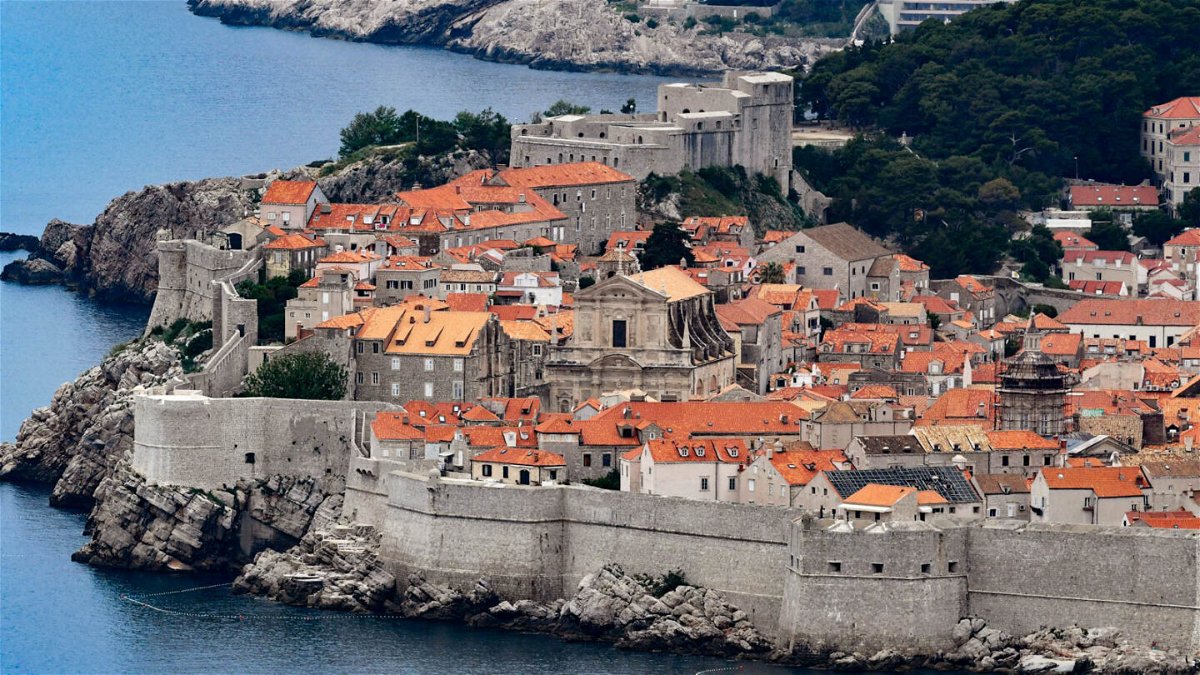
If you’re planning to travel to Croatia, here’s what you’ll need to know and expect if you want to visit during the Covid-19 pandemic
Croatia has had one of the highest death rates in Europe from Covid-19. While the country reopened to tourists for the 2021 summer season, it soon began see coronavirus cases rise again. The new Omicron variant, which first emerged in November 2021, has brought about yet another increase in infections, with Croatia recording its highest number of cases so far in January 2022.
What’s on offer
Its coastline and myriad islands have helped make Croatia the perfect summer escape for travelers keen on something a bit less obvious than Greece, Italy or Spain. Dubrovnik, with its historic old town and ancient walls, is a key stop off for cruise liners, but the whole coast is a joy, from Roman remains in Pula and Split to picture perfect islands such as Korčula.
The borders are now open, although travelers need either an EU Digital Covid Certificate, or proof of vaccination, recovery from Covid-19, or a negative test. Arrivals from some destinations are subject to quarantine — see below — and anyone coming from a non-European destination will need a confirmed accommodation booking.
What are the restrictions?
Passengers arriving from EU and Schengen-associated countries, whatever their nationality, are allowed into Croatia on the production of an EU Digital Covid Certificate. If you don’t have one, you must produce either a vaccination certificate (of a vaccination approved for use in the EU), with vaccine completed within the past 270 days; a certificate of recovery from Covid-19, along with proof of at least one dose of vaccine within eight months of contracting the disease; or a negative PCR test or a rapid antigen test recognized by the EU ( see here for a list) taken within 72 or 48 hours respectively.
Otherwise, you can opt to get a test on arrival and then self-isolate until you get a negative result, or for 10 days. The same rules apply for third-country nationals resident in the EU, or EU nationals resident abroad.
However, if the country or area you are arriving from is listed as “red” or “dark red” by the European Center for Disease Control, there are extra restrictions — see below.
The borders are officially closed to third-country nationals, but tourism is a valid exception. You must bring a certificate of paid accommodation (in a hotel, private rental, campsite or rented boat), in addition to the paperwork above.
There are additional measures for arrivals from the countries listed as high risk by the Croatian Institute of Public Health, regardless of vaccination status.
Travelers arriving from South Africa, Brazil, India or Zanzibar must present a negative PCR test result taken no more than 48 hours prior to arrival and undergo a mandatory 14 day self-isolation period. This can be reduced to seven days if a second PCR test also confirms a negative result.
Those arriving from the UK are now required to produce either proof of a vaccination, a negative antigen Covid-19 test result no older than 48 hours, or a negative PCR test result taken no more than 72 hours before, or a doctor’s certificate of recovery from the virus.
Countries or regions which are on the “red” or “dark red” list of the European Center for Disease Control must also abide by these same. For a full list, see here .
US CDC travel advisory
Level 4: Avoid travel to Croatia. If you must travel to Croatia, make sure you are vaccinated and up to date with your Covid-19 vaccines before travel.
Useful links
Government travel advice
Approved antigen tests
European Center for Disease Control list
Our latest coverage
Croatia is so keen to welcome back tourists that it’s even offering them the chance to go and live there full time with a new digital nomad permit . If that seems a bit extreme, this gallery of the country’s most beautiful places should amp up your wanderlust.
The-CNN-Wire ™ & © 2022 Cable News Network, Inc., a WarnerMedia Company. All rights reserved.
Tamara Hardingham-Gill, Julia Buckley and Joe Minihane contributed to this report.
Jump to comments ↓

CNN Newsource
Related articles.

ABC-7 First Alert: Warm & breezy Friday, strong dusty winds for Easter
A russian journalist who covered navalny’s trials is jailed in moscow on charges of extremism, doris kearn goodwin and laurie anderson to receive medals from american academy of arts and letters, blind people can hear and feel april’s total solar eclipse with new technology.
KVIA ABC 7 is committed to providing a forum for civil and constructive conversation.
Please keep your comments respectful and relevant. You can review our Community Guidelines by clicking here
If you would like to share a story idea, please submit it here .
Situation in Haiti March 22, 2024
U.s. citizens in haiti, update january 10, 2024, information for u.s. citizens in the middle east.
- Travel Advisories |
- Contact Us |
- MyTravelGov |
Find U.S. Embassies & Consulates
Travel.state.gov, congressional liaison, special issuance agency, u.s. passports, international travel, intercountry adoption, international parental child abduction, records and authentications, popular links, travel advisories, mytravelgov, stay connected, legal resources, legal information, info for u.s. law enforcement, replace or certify documents.
Before You Go
Learn About Your Destination
While Abroad
Emergencies
Share this page:
Travel Advisory July 26, 2023
Croatia - level 1: exercise normal precautions.
Reissued with obsolete COVID-19 page links removed.
Exercise normal precautions in Croatia.
Read the country information page for additional information on travel to Croatia.
If you decide to travel to Croatia:
- Enroll in the Smart Traveler Enrollment Program ( STEP ) to receive Alerts and make it easier to locate you in an emergency.
- Follow the Department of State on Facebook and Twitter .
- Review the Country Security Report for Croatia.
- Visit the CDC page for the latest Travel Health Information related to your travel.
- Prepare a contingency plan for emergency situations. Review the Traveler’s Checklist .
Embassy Messages
View Alerts and Messages Archive
Quick Facts
Three months after the planned date of departure
One page is required for an entry stamp
Up to 10,000 euros
Embassies and Consulates
U.s. embassy zagreb.
Ulica Thomasa Jeffersona 2 10010 Zagreb, Croatia Telephone: +(385) (1) 661-2200 Emergency After-Hours Telephone: +(385) (1) 661-2200 Fax: +(385) (1) 665-8933 Email: [email protected]
Destination Description
Learn about the U.S. relationship to countries around the world.
Entry, Exit and Visa Requirements
You need a valid U.S. passport to enter Croatia. EU regulations require that U.S. passport holders have no less than three months’ validity when they depart Croatia. U.S. passport holders with less than three months may be denied entry. The U.S. Embassy strongly suggests that you have at least six months of validity to avoid problems when you travel.
Croatia is a member of the Schengen area. Land border controls between Croatia, Slovenia, and Hungary and the sea border with Italy ceased in 2023. The land borders with Serbia, Bosnia and Herzegovina, and Montenegro continue to have police and customs checks in place, as these countries are outside of the Schengen area. Airport controls for flights between Croatia and other countries within the Schengen area ceased in 2023. Visit the Embassy of Croatia website for the most current visa information.
- U.S. passport holders do not need a visa if they are traveling to Croatia for tourism or business for less than 90 days within a 180-day period.
- For entry, residence, and work requirements in Croatia, please visit the Croatian Ministry of Interior’s website . The U.S. Embassy is not able to intervene in the issuance of a Croatian residence permit.
- You must register at a local police station within three days of arrival in Croatia. If you are staying at a hotel, hostel, or vacation rental, you will be registered by the property owner.
- Foreign documents submitted for residence in Croatia must be translated into Croatian and have an apostille stamp. The U.S. Embassy cannot authenticate documents. For information on applying for apostille and authentication services, please see the Department of State’s Office of Authentications website.
The U.S. Department of State is unaware of any HIV/AIDS entry restrictions for visitors to, or foreign residents of, Croatia.
Find information on dual nationality , prevention of international child abduction , and customs regulations on our websites.
Military/Status of Forces Agreement (SOFA) Travelers : While active-duty U.S. military personnel may enter Croatia under the SOFA with proper Department of Defense (DOD) identification and travel orders, all SOFA family members, civilian employees, and contractors must have valid passports. Active-duty military personnel should obtain a tourist passport before leaving the United States to accommodate off-duty travel. DOD travelers should consult with their unit for clearance before leaving the United States
Safety and Security
Terrorism : Terrorist groups and those inspired by such organizations are intent on attacking soft targets and are increasingly using less sophisticated methods of attack – including knives, firearms, rudimentary IEDs and vehicles – to target crowds more effectively. Frequently, their aim is unprotected or vulnerable targets, such as:
- High-profile public events (sporting contests, political rallies, demonstrations, holiday events, celebratory gatherings, etc.)
- Hotels, clubs, and restaurants frequented by tourists
- Places of worship
- Shopping malls and markets
- Public transportation systems (including subways, buses, trains, and scheduled commercial flights)
For more information, see our Terrorism page.
Land Mines: Armed conflict ended in all parts of Croatia in 1995; however, de-mining of areas along former confrontation lines continues. Known mined areas are well marked with Croatian-language warning signs using the international symbol for mines: a skull and crossbones inside a red, upside-down triangle. Drivers in former conflict areas should stay on paved roads to reduce the risk of encountering unmarked mines and unexploded ordnance.
- For more information about mine-affected areas in Croatia, please visit the Croatian Mine Action Center's website
Crime: Violent crime is rare but isolated attacks targeting specific persons or property can occur and may be racially motivated or prompted by lingering ethnic tensions from Croatia's war for independence.
- Safeguard your belongings , especially when using public transport. Report incidents of theft to the local police. File a police report if your passport is stolen.
- Don’t display outward signs of wealth . It may make you a target for thieves.
- Avoid "gentlemen's clubs." In the past, such establishments have presented foreign customers with inflated bills and threatened those who refuse to pay.
U.S. business entities are encouraged to read the most recent Overseas Security Advisory Council (OSAC) Annual Crime and Safety Report for Croatia .
Demonstrations : While civil disorder is rare, U.S. citizens should monitor local media coverage, review their personal security practices, and be always aware of their surroundings. Even peaceful demonstrations can turn violent with little or no notice. Security messages about demonstrations can be found here on the U.S. Embassy in Croatia’s website. Some soccer matches result in violent clashes of fans from rival teams. These clashes often cause disruptions in traffic in the affected area. High profile matches are often accompanied by heavy police presence.
International Financial Scams: See the Department of State and the FBI pages for information on scams.
Victims of Crime : Local authorities are responsible for investigating and prosecuting crimes. Report crimes to the local police by dialing 112. U.S. citizen victims of sexual assault may contact the U.S. Embassy at +385 (1) 661-2200 and check the information on local resources for victims of sexual assault on the U.S. Embassy in Croatia’s website. See our webpage on help for U.S. victims of crime overseas .
- help you find appropriate medical care
- assist you in reporting a crime to the police
- contact relatives or friends with your written consent
- explain the local criminal justice process in general terms
- provide a list of local attorneys
- provide our information on victim’s compensation programs in the United States
- provide information about local resources for victims of crime
- provide an emergency loan for repatriation to the United States and/or limited medical support in cases of destitution
- help you find accommodation and arrange flights home if you are destitute
- replace a stolen or lost passport
Domestic Violence : U.S. citizen victims of domestic violence may contact the U.S. Embassy in Croatia for assistance. You can find additional local resources for victims of domestic violence on the U.S. Embassy’s website.
Tourism: The tourism industry in Croatia is regulated and rules generally enforced regarding safety inspections. Hazardous areas/activities are identified with appropriate signage and professional staff is typically on hand in support of organized activities. In the event of an injury, appropriate medical treatment is widely available throughout the country. Outside of a major metropolitan center, it may take more time for first responders and medical professionals to reach a patient and provide assistance. U.S. citizens are encouraged to purchase medical evacuation insurance .
Local Laws & Special Circumstances
Criminal Penalties : You are subject to local laws. If you violate local laws, even unknowingly, you may be arrested, imprisoned, or deported.
Furthermore, some crimes are also prosecutable in the United States, regardless of local law. For examples, see our website on crimes against minors abroad and the Department of Justice website.
Arrest Notification : If you are arrested or detained, ask police to notify the U.S. Embassy immediately. See our webpage for further information.
Recreational Drugs : Some recreational drugs may be illegal in Croatia. The Government of Croatia maintains a List of Narcotic Drugs, Psychotropic Substances and Plants Which Can Be Used for Preparation of Narcotic Drugs , which lists illegal substances.
Counterfeit and Pirated Goods : Although counterfeit and pirated goods are prevalent in many countries, they may still be illegal according to local laws. You may also pay fines or have to give them up if you bring them back to the United States. See the U.S. Department of Justice website for more information.
Real estate : U.S. citizens should exercise due diligence when considering purchasing real estate in Croatia. Consult with an attorney before undertaking a real estate purchase and be careful to fully understand the implications of all parts of a real estate contract. Working with a translator can help ensure your rights are protected. The U.S. Embassy cannot assist U.S. citizens with legal disputes. Be prepared to take your case to the local courts. Please review the U.S. Embassy’s website for additional information on buying real estate in Croatia .
Travelers checks, or personal checks are no longer accepted in Croatia . ATMs are common, and credit cards are generally accepted. Facilities are available for wiring or transferring money.
Recreational Boating: The Croatian government requires all recreational captains chartering Croatian-flagged vessels to have a certificate of competence.
- Croatia recognizes certain certificates issued by the U.S. Sailing Association and licenses issued by the national authorities of other countries.
- Details on classes of licenses recognized by country can be found on the Ministry of the Sea, Transport, and Infrastructure ’s webpage.
- Tourists in Croatia can be certified by passing a test at harbormasters' offices in Pula, Rijeka, Senj, Zadar, Sibenik, Split, Ploce, Dubrovnik, or at the Ministry in Zagreb.
- Travelers arriving by private marine craft should refer to the Ministry’s website for information on nautical regulations.
Climbing and Hiking: If you intend to hike or climb in the mountains, seek local guides’ expert advice. For emergencies, call 112. Rock climbers in Paklenica National Park should consult a local guide or contact Paklenica National Park prior to their visit.
Faith-Based Travelers: See our following webpages for details:
- Faith-Based Travel Information
- International Religious Freedom Report – see country reports
- Human Rights Report – see country reports
- Hajj Fact Sheet for Travelers
- Best Practices for Volunteering Abroad
LGBTQI+ Travelers: There are no legal restrictions regarding same-sex sexual relations or the organization of LGBTQI+ events in Croatia. Although LGBTQI+ individuals are afforded full rights in Croatia, same-sex couples may face legal challenges in the areas of adoption and next-of-kin determinations. In 2014, Croatia enacted the Law on Life Partnership of Same Sex Couples allowing for formal registration of same sex unions. The LGBTQI+ community is protected by anti-discrimination laws, and there are no legal or governmental impediments to the organization of LGBTQI+ events. However, there have been incidents against LGBTQI+ groups, notably during annual pride events, both in Zagreb and Split. Individual cases of attacks on members of the LGBTQI+ community have also been reported.
See our LGBTQI+ Travel Information page and section six of our Human Rights Report for further information.
Travelers With Disabilities or Who May Require Accessibility . Accessibility and accommodation in Croatia are different from those in the United States. Croatian law prohibits discrimination against persons with disabilities. It also mandates access to transportation, communication, and public buildings for persons with disabilities; however, there is a marked difference in new construction compared to old construction, where access can still be limited. Croatia’s geography is hilly and often steep, particularly along the coast, and it presents challenges to some persons with disabilities. Access to public transportation may not always be available. Outside urban areas, accessibility worsens significantly.
Many cities in Croatia are making access improvement for travelers with disabilities.
Students: See our Students Abroad page and FBI travel tips .
Women Travelers: See our travel tips for Women Travelers .
Adequate medical care is readily available in Croatia, but facilities may not be comparable to U.S. standards. Travelers to Croatia may obtain a list of English-speaking physicians on the U.S. Embassy’s website. We do not endorse or recommend any specific medical provider or clinic. You may need a prescription to get some medications that you can purchase over the counter in the United States.
For emergency services in Croatia, dial 194 or 112.
Ambulance services are:
- not widely available, and training and availability of emergency responders may be below U.S. standards.
- not equipped with state-of-the-art medical equipment.
Health facilities in general:
- Adequate health facilities are available in major cities but health care in rural areas may be below U.S. standards.
- Public medical clinics may lack advanced resources and specialized medical supplies.
- Credit card payment is not always available. Some hospitals and medical professionals require cash payment.
- Private hospitals may require advance payment or proof of adequate insurance before admitting a patient.
- Travelers should make efforts to obtain complete information on billing, pricing, and proposed medical procedures before agreeing to any medical care.
- Medical staff may speak little or no English.
- Public hospitals are minimally staffed overnight in non-emergency wards.
- Patients bear all costs for transfer to or between hospitals.
- Psychological and psychiatric services are limited, even in the larger cities, with hospital-based care only available through government institutions.
- There are shortages of medical staff (nurses, doctors) throughout the country that may delay exams, imaging, surgeries, etc. at public healthcare centers. Occasionally shortages of special medications may occur.
We do not pay medical bills. U.S. Medicare does not apply overseas.
Medical Insurance: Make sure your health insurance plan provides coverage overseas. Most care providers in Croatia accept cash or credit card payments. See our webpage for more information on insurance coverage overseas.
We strongly recommend supplemental insurance to cover medical evacuation.
Pharmaceuticals
- Prescription medication: If traveling with prescription medication, please check with the government of Croatia and its Customs Administration to make sure the medication is legal in Croatia. Always carry your prescription medication in original packaging with your doctor’s prescription. Visit the U.S. Embassy’s website for information on bringing medical drugs for personal use when traveling to Croatia . Note that Croatian law prohibits the importation of drugs via postal mail.
- Exercise caution when purchasing medication overseas. Medication should be purchased in consultation with a medical professional and from reputable establishments.
- U.S. Customs and Border Protection and the Food and Drug Administration are responsible for rules governing the transport of medication back to the United States. Medication purchased abroad must meet their requirements to be legally brought back into the United States. Medication should be for personal use and must be approved for usage in the United States. Please visit the U.S. Customs and Border Protection and the Food and Drug Administration websites for more information.
Vaccinations : Be up-to-date on all vaccinations recommended by the U.S. Centers for Disease Control and Prevention.
- If you will be in Croatia for more than three months, especially if you anticipate hiking, camping, or other outdoor activities in forested areas, you may wish to get a tick-borne encephalitis (TBE) vaccine. According to the CDC, the TBE vaccine is now available in the United States, but is carried only in larger travel clinics.
If you are in Croatia, it is available from local doctors. Use insect repellent and inspect your body for ticks after spending time outdoors.
- Influenza is prevalent during the winter season.
- HIV/AIDS: There is a low prevalence of HIV/AIDS in Croatia. HIV/AIDS treatment and medication are available in Croatia.
Visit the U.S. Centers for Disease Control and Prevention website for more information about Resources for Travelers regarding specific issues in Croatia.
Medical Tourism and Elective Surgery
Medical tourism is a rapidly growing industry. People seeking health care overseas should understand that medical systems operate differently from those in the United States and are not subject to the same rules and regulations. Anyone interested in traveling for medical purposes should consult with their local physician before traveling and visit the U.S. Centers for Disease Control and Prevention website for more information on medical tourism, the risks of medical tourism, and what you can do to prepare before traveling to Croatia.
- We strongly recommend supplemental insurance to cover medical evacuation in the event of unforeseen medical complications.
- Your legal options in case of malpractice are very limited in Croatia.
- Although Croatia has several elective/cosmetic surgery facilities that are on par with those found in the United States, the quality of care varies widely. If you plan to undergo surgery in Croatia, make sure that emergency medical facilities are available and that professionals are accredited and qualified.
Adventure Travel
Visit Adventure Travel and U.S. Centers for Disease Control and Prevention for more information.
Air Quality : Cities in Croatia have air pollution levels slightly higher than those in major U.S. cities, with higher levels measured in winter. Visit the European Environment Agency’s website for information on air quality in Croatia.
Water Quality
- Croatia has an abundance of fresh water and the public drinking water systems cover around 87% of the population. Water quality is tested daily throughout the country. Tests are performed according to internationally accepted standards. Water in Croatia is of high quality with potable tap water being available in most places. Some rural areas rely on private wells that may not be subject to quality testing standards. Some older buildings in major cities may have led-laced piping leading to increased levels of lead in the drinking water. You can learn more by visiting the Croatian Institute of Public Health website .
Further health information:
- World Health Organization
- U.S. Centers for Disease Control and Prevention (CDC)
Travel and Transportation
Road Conditions and Safety : Road conditions in Croatia may differ significantly from those in the United States. Current information about traffic and road conditions is available in English from the Croatian Automobile Association (HAK) or by calling +385 1 464-0800 (English-speaking operators available 24 hours) or +385 1 661-1999.
- Exercise caution when driving in Croatia. On the highways, be aware of aggressive drivers passing on curves or in oncoming lanes.
- Highway tolls are higher than in the United States and can be paid in cash or by credit card.
- Croatian radio broadcasts programs in foreign languages on several frequencies. From mid-June to mid-September, Channel 2 broadcasts foreign news, traffic information, and important information in English, German and Italian.
- Within Croatia, emergency roadside assistance is available by calling 1987 or, if calling internationally, +385 1 1987. Dial 112 or 192 to speak to the police and dial 194 for an ambulance. Dial 112 for emergency services and they will automatically forward your call to either the police, ambulance, fire department, the Croatian Mountain Rescue Service or all of the above.
Traffic Laws: Vehicles drive on the right side of the road and overtake on the left. Speed limits range from 110 to 130 km/h (68 to 80 mph) on highways and motorways and 50 to 90 km/h (30 to 55 mph) on urban thoroughfares.
- A Croatian driver's license is required for drivers who stay longer than twelve months.
- Don’t drink and drive . The maximum legal blood-alcohol limit for drivers is 0.05 percent (0.00 percent for drivers with less than two years’ experience, drivers under 24 years of age, and truck or bus drivers).
- Police routinely spot-check for drunk driving and administer breath-analyzer tests at the scene of all accidents. Refusal to take a breath test is considered a de facto admission of driving while intoxicated. Penalties may include fines up to 2,500 euros and/or prison sentences.
- For traffic accidents involving a foreign-registered vehicle, the responding police officer must issue a vehicle damage certificate to the owner of the foreign-registered vehicle; this is necessary to cross the border out of Croatia. Upon written request, the police station in the area where the accident occurred will issue a traffic accident investigation record.
- Seat belts for drivers and passengers are mandatory . Infants must travel in child-safety seats. Children shorter than 150cm in height and younger than 3 years may not ride in the front seat.
- No right on red at traffic lights unless allowed by an additional green arrow.
- Pedestrians have the right of way when crossing in designated, white-striped crosswalks. You must stop.
Headlights must be used all winter (from the start of November until the end of March), as well as during fog and other inclement weather.
- It is illegal to talk on a cell phone while driving unless using a hands-free device.
- For specific information concerning Croatian driver's permits, vehicle inspection, road tax, and mandatory insurance, please contact the Croatian National Tourist Board .
Public Transportation : Pay attention to trams (streetcars) in Zagreb, which travel at high speeds through the narrow streets.
See our Road Safety webpage for more information. Visit the websites of the Ministry of the Interior , the Croatian National Tourist Board , and the Croatian Ministry of the Sea, Transport, and Infrastructure , which are responsible for road safety.
Aviation Safety Oversight: The U.S. Federal Aviation Administration (FAA) has assessed the Government of Croatia’s Civil Aviation Authority as being in compliance with International Civil Aviation Organization (ICAO) aviation safety standards for oversight of Croatia’s air carrier operations. Further information may be found on the FAA’s safety assessment page .
For Coastal Countries:
Maritime Travel: Mariners planning travel to Croatia should also check for U.S. maritime advisories and alerts at www.marad.dot.gov/msci . Information may also be posted to the U.S. Coast Guard homeport website and the NGA broadcast warnings website (select “broadcast warnings”).
For additional travel information
- Enroll in the Smart Traveler Enrollment Program (STEP) to receive security messages and make it easier to locate you in an emergency.
- Call us in Washington, D.C. at 1-888-407-4747 (toll-free in the United States and Canada) or 1-202-501-4444 (from all other countries) from 8:00 a.m. to 8:00 p.m., Eastern Standard Time, Monday through Friday (except U.S. federal holidays).
- See the State Department’s travel website for the Worldwide Caution and Travel Advisories .
- Follow us on Twitter and Facebook .
- See traveling safely abroad for useful travel tips.
Review information about International Parental Child Abduction in Croatia . For additional IPCA-related information, please see the International Child Abduction Prevention and Return Act ( ICAPRA ) report.
Travel Advisory Levels
Assistance for u.s. citizens, croatia map, learn about your destination, enroll in step.

Subscribe to get up-to-date safety and security information and help us reach you in an emergency abroad.
Recommended Web Browsers: Microsoft Edge or Google Chrome.
Make two copies of all of your travel documents in case of emergency, and leave one with a trusted friend or relative.
Afghanistan
Antigua and Barbuda
Bonaire, Sint Eustatius, and Saba
Bosnia and Herzegovina
British Virgin Islands
Burkina Faso
Burma (Myanmar)
Cayman Islands
Central African Republic
Cote d Ivoire
Curaçao
Czech Republic
Democratic Republic of the Congo
Dominican Republic
El Salvador
Equatorial Guinea
Eswatini (Swaziland)
Falkland Islands
France (includes Monaco)
French Guiana
French Polynesia
French West Indies
Guadeloupe, Martinique, Saint Martin, and Saint Barthélemy (French West Indies)
Guinea-Bissau
Isle of Man
Israel, The West Bank and Gaza
Liechtenstein
Marshall Islands
Netherlands
New Caledonia
New Zealand
North Korea (Democratic People's Republic of Korea)
Papua New Guinea
Philippines
Republic of North Macedonia
Republic of the Congo
Saint Kitts and Nevis
Saint Lucia
Saint Vincent and the Grenadines
Sao Tome and Principe
Saudi Arabia
Sierra Leone
Sint Maarten
Solomon Islands
South Africa
South Korea
South Sudan
Switzerland
The Bahamas
Timor-Leste
Trinidad and Tobago
Turkmenistan
Turks and Caicos Islands
United Arab Emirates
United Kingdom
Vatican City (Holy See)
External Link
You are about to leave travel.state.gov for an external website that is not maintained by the U.S. Department of State.
Links to external websites are provided as a convenience and should not be construed as an endorsement by the U.S. Department of State of the views or products contained therein. If you wish to remain on travel.state.gov, click the "cancel" message.
You are about to visit:
- Company History
- Mission Statement
- Philippines
- South Africa
- Afghanistan
- American Samoa
- Antigua and Barbuda
- British Virgin Islands
- Burkina Faso
- Canary Islands
- Cayman Islands
- Central African Republic
- Christmas Island
- Cocos (Keeling) Islands
- Cook Islands
- Cote d'Ivoire
- Democratic Republic of the Congo
- Dominican Republic
- Easter Island
- El Salvador
- Equatorial Guinea
- Falkland Islands
- Faroe Islands
- French Guiana
- French Polynesia
- Guinea-Bissau
- Liechtenstein
- Madeira Islands
- Marshall Islands
- Netherlands
- New Caledonia
- New Zealand
- Norfolk Island
- North Korea
- North Macedonia
- Northern Mariana Islands
- Palestinian Territories
- Papua New Guinea
- Pitcairn Islands
- Puerto Rico
- Republic of the Congo
- Saint Barthelemy
- Saint Helena
- Saint Kitts and Nevis
- Saint Lucia
- Saint Martin
- Saint Pierre-et-Miquelon
- Saint Vincent and the Grenadines
- Sao Tome and Principe
- Saudi Arabia
- Sierra Leone
- Sint Eustatius
- Solomon Islands
- South Georgia and the South Sandwich Islands
- South Korea
- South Sudan
- Switzerland
- Trinidad and Tobago
- Turkmenistan
- Turks and Caicos Islands
- U.S. Virgin Islands
- United Arab Emirates
- United Kingdom
- United States
- Wake Island
- Western Sahara
- Travel Vaccines
- Travel Health Consultations
- Travellers’ Diarrhea Kits
- Dengue Fever Prevention
- Malaria Prevention
- Chikungunya Prevention
- Zika Prevention
- Ebola Virus
- Yellow Fever
- Hepatitis A
- Japanese Encephalitis
- Hepatitis B
- Tickborne Encephalitis (TBE)
- Tetanus-Diphtheria-Pertussis
- Measles-Mumps-Rubella
- Influenza (Flu)
- Blood Tests
- Vitamin Injections
- Physician Referral Program
- London – Euston Travel Clinic
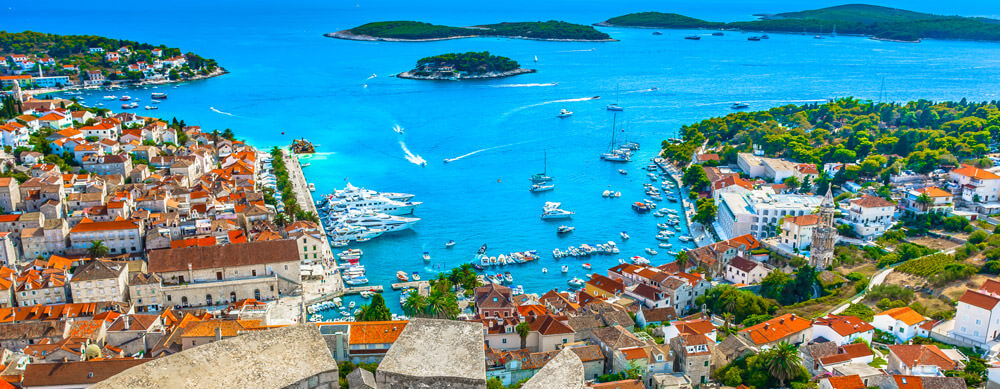
Travel Vaccines and Advice for Croatia

Croatia is a country with a rich history and culture. The country has become a popular tourist destination due to its captivating coasts and ancient cities.
The capital city of Croatia is Zagreb and is also, by far, the largest city in the country. Other larger cities include Split and Rijeka.
Do I Need Vaccines for Croatia?
Yes, some vaccines are recommended or required for Croatia. The National Travel Health Network and Centre and WHO recommend the following vaccinations for Croatia: COVID-19 , hepatitis A , hepatitis B , rabies , tickborne encephalitis and tetanus .
See the bullets below to learn more about some of these key immunisations:
- COVID-19 – Airborne – Recommended for all travellers
- Hepatitis A – Food & Water – Recommended for most travellers to the region, especially if unvaccinated.
- Hepatitis B – Blood & Body Fluids – Accelerated schedule available
- Tetanus – Wounds or Breaks in Skin – Recommended for travelers to most regions, especially if not previously vaccinated.
- Rabies – Saliva of Infected Animals – High risk country. Vaccine recommended for long-stay travellers and those who may come in contact with animals.
- Tickborne Encephalitis – Ticks or Unpasteurised Products – Transmission is widespread. Spread is most common from early spring to late autumn.
See the tables below for more information:
See our vaccinations page to learn more about these infections and vaccines. Ready to protect yourself? Book your travel health appointment today by calling or schedule online now .
Do I Need a Visa for Croatia?
A visa is not needed for stays in Croatia under 90 days within a six month period. Passports must be valid for at least six months.
Sources: Embassy of Croatia and GOV.UK
What Is the Climate Like in Croatia?
Croatia has a climate with dry and warm summers; and wet winters. In the summer months, temperatures range are in the 20’s.
Winter temperatures vary by region. Warmer areas are in the 20’s and cooler around 0. It is colder in the mountain regions.
How Safe Is Croatia?
Due to war in the 1990’s, there are still landmines in some areas. All areas that may be dangerous are clearly labeled. If you are motoring through these areas, stay on the paved roads.
Crime is relatively low in the country, but there still is a change for petty crimes against tourists. Keep a close eye on your belongings in crowded spaces.
King’s Landing in Croatia
Croatia has recently become a hot tourist spot due to its picturesque villages and towns. The most popular of these is Dubrovnik, a set location for the telly show Game of Thrones .
The city of Dubrovnik is famous for its diplomacy after it was founded in the 7th century by Greek asylum seekers. It maintains historic today, and is officially a UNESCO Heritage Site.
Filming locations to go see in Dubrovnik include St. Dominika Street, Pile, the Bokar Fortress, and Mineeta Tower. There are tours available to see all the King’s Landing sites.
What Should I Take To Croatia?
Here are some essential items to consider for your trip to Croatia:
- No matter what season you’re planning to visit Croatia in, temperatures can range from day to day. Bring layers so you can be comfortable in a variety of temperatures.
- Bring tick repellent to protect against tickborne encephalitis.
- The seaside in Croatia are wet and rocky. Bring good shoes that will work with both.
Embassy of the United Kingdom in Croatia
If you are in Croatia and have an emergency (for example, been attacked, arrested or someone has died) contact the nearest consular services. Contact the embassy before arrival if you have additional questions on entry requirements, safety concerns or are in need of assistance.
British Embassy Zagreb Ivana Lucica 4 10000 Zagreb Croatia Telephone: +385 (1) 6009 100 Emergency Phone: +385 1 6009 100 Fax: +385 (1) 6009 111 Contact Form: Click Here
Stay safe abroad with Passport Health. Ring or book online now and start travelling safely today!
On This Page: Do I Need Vaccines for Croatia? Do I Need a Visa for Croatia? What Is the Climate Like in Croatia? How Safe Is Croatia? King’s Landing in Croatia What Should I Take To Croatia? Embassy of the United Kingdom in Croatia

- Privacy Policy
- Automatic Data Collection Statement
- Skip to main content
- Skip to "About this site"
Language selection
Search travel.gc.ca.
Help us to improve our website. Take our survey !
COVID-19: travel health notice for all travellers
Croatia travel advice
Latest updates: The Need help? section was updated.
Last updated: March 25, 2024 10:20 ET
On this page
Safety and security, entry and exit requirements, laws and culture, natural disasters and climate, croatia - take normal security precautions.
Take normal security precautions in Croatia
Back to top
The violent crime rate is low. Petty crime, such as pickpocketing and purse snatching, is common.
Organized groups of pickpockets often use distraction techniques and are particularly active in:
- main cities
- public transportation hubs
- hotel lobbies
- restaurants, patios and outdoor cafés
- tourist sites and attractions
While in Croatia:
- avoid showing signs of affluence and carrying large sums of cash
- ensure that your belongings, including your passport and other travel documents, are secure at all times
- don’t leave luggage unattended at airport check-in or ticket counters, car rental desks or hotel lobbies
- don’t leave luggage or valuables in a vehicle, and always park your vehicle in secure facilities
- be cautious when travelling on public transportation and overnight trains
- carry a photocopy or digital copy of your passport identification page, driver’s licence, train or airline tickets and credit cards
Credit card and ATM fraud may occur. Be cautious when using debit or credit cards:
- pay careful attention when others are handling your cards
- use ATMs located in public areas or inside a bank or business
- avoid using card readers with an irregular or unusual feature
- cover the keypad with one hand when entering your PIN
- check for any unauthorized transactions on your account statements
Some bars, nightclubs and “cabarets” may try to charge exorbitant prices. Disputes about overcharging may lead to threats of violence, and security guards may force you to pay.
- Always confirm prices before consuming
- Avoid running a tab or leaving your credit card with bar or restaurant staff
- Check your bill to make sure it’s exact
Overseas fraud
Spiked food and drinks
Never leave food or drinks unattended or in the care of strangers. Be wary of accepting snacks, beverages, gum or cigarettes from new acquaintances. These items may contain drugs that could put you at risk of sexual assault and robbery.
While most of the territory has been cleared, landmines and unexploded ordnance may still pose a serious risk in certain areas. These are usually clearly identified and major tourist destinations are not affected.
The Croatian Mine Action Centre maintains a map of suspected minefields and has also developed a free smartphone app to alert users if they enter a danger zone.
If you plan on visiting areas outside of major tourist destinations:
- consult the map of suspected minefields and download the alert app
- pay attention to signs indicating the possible presence of landmines
- remain on paved roads
- avoid open fields, road shoulders and unmarked trails
Useful links
- Map of suspected minefields - The Croatian Mine Action Centre
- Minefields info app - The Croatian Mine Action Centre
There is a threat of terrorism in Europe. Terrorists have carried out attacks in several European cities. Terrorist attacks could occur at any time.
Targets could include:
- government buildings, including schools
- places of worship
- airports and other transportation hubs and networks
- public areas such as tourist attractions, restaurants, bars, coffee shops, shopping centres, markets, hotels and other sites frequented by foreigners
Always be aware of your surroundings when in public places. Be particularly vigilant during:
- sporting events
- religious holidays
- public celebrations
- major political events, such as elections
Terrorists may use such occasions to mount attacks.
Demonstrations
Demonstrations take place from time to time.
Even peaceful demonstrations can turn violent at any time. They can also lead to disruptions to traffic and public transportation.
- Avoid areas where demonstrations and large gatherings are taking place
- Follow the instructions of local authorities
- Monitor local media for information on ongoing demonstrations
Mass gatherings (large-scale events)

Soccer matches and sports events
Sports events sometimes lead to rowdy behaviour and violent incidents.
Be vigilant if you attend soccer matches and sports rallies.
Water activities
Coastal waters can be dangerous.
In the fall and winter months, waves can be unpredictable, breaking further than expected and causing strong undertows.
- Be cautious when walking on the shore
- Avoid visiting beaches or coastal areas during periods of severe weather warnings
- Always take into account warning flags at beaches
- Don’t dive into unknown water, as hidden rocks or shallow depths can cause serious injury or death
- Exercise caution and follow the advice of local authorities
Recreational boating
If you are planning to go boating:
- know the navigation rules
- follow safe practices for all water activities such as jet-skiing, water-skiing, diving, swimming or fishing
- don’t overload your boat capacity
- carry a VHF marine radio that will generate your position in case of emergency
- be prepared for emergencies
Water safety abroad
Mountain activities
Mountain activities, such as hiking, can be dangerous, especially if they are not well prepared. Trails are not always marked and weather conditions can change rapidly, even in summer.
If you intend to go hiking or climbing:
- never do so alone
- consider hiring an experienced guide from a reputable company
- buy travel insurance that includes helicopter rescue and medical evacuation
- ensure that your physical condition is good enough to meet the challenges of your activity
- ensure that you’re properly equipped
- stay informed about weather and other conditions that may pose a hazard
- inform a family member or friend of your itinerary
- obtain detailed information on trekking routes before setting out
- do not venture off marked trails
Road safety
Road conditions and road safety can vary greatly throughout the country. Driving conditions may be hazardous on small roads. Many roads are poorly maintained. In Istria and along the Adriatic coast, roads can be congested, narrow and slippery when wet. Many lack guard rails. Accidents involving cyclists have occurred.
Drivers don’t always respect traffic laws.
In Zagreb, always be alert when walking, driving or cycling near tram rails.
Road conditions and safety information - Croatian Automobile Association (Hrvatski Autoklub)
Public transportation
Public transportation in Zagreb is extensive, safe and reliable.
You must validate your ticket before boarding transportation.
Train and bus
Main cities and tourist areas are well connected by bus services and trains.
Ferry services operate between mainland and several islands of the Adriatic coast, particularly during summer.
Taxis are generally safe. Ridesharing services are available.
- Use only officially marked taxis or a trusted ridesharing app
- Negotiate fares in advance or insist that the driver use the meter, as you may be overcharged
We do not make assessments on the compliance of foreign domestic airlines with international safety standards.
Information about foreign domestic airlines
Every country or territory decides who can enter or exit through its borders. The Government of Canada cannot intervene on your behalf if you do not meet your destination’s entry or exit requirements.
We have obtained the information on this page from the Croatian authorities. It can, however, change at any time.
Verify this information with the Foreign Representatives in Canada .
- Schengen area
Croatia is a Schengen area country. Canadian citizens do not need a visa for travel to countries within the Schengen area. However, visa-free travel only applies to stays of up to 90 days in any 180-day period. Stays are cumulative and include visits to any Schengen area country.
If you plan to stay in the Schengen area for a longer period of time, you will need a visa. You must contact the high commission or embassy of the country or countries you are travelling to and obtain the appropriate visa(s) prior to travel.
- Foreign Representatives in Canada
Entry requirements vary depending on the type of passport you use for travel.
Before you travel, check with your transportation company about passport requirements. Its rules on passport validity may be more stringent than the country’s entry rules.
Regular Canadian passport
Your passport must be valid for at least 3 months beyond the date you expect to leave from Croatia.
Passport for official travel
Different entry rules may apply.
Official travel
Passport with “X” gender identifier
While the Government of Canada issues passports with an “X” gender identifier, it cannot guarantee your entry or transit through other countries. You might face entry restrictions in countries that do not recognize the “X” gender identifier. Before you leave, check with the closest foreign representative for your destination.
Other travel documents
Different entry rules may apply when travelling with a temporary passport or an emergency travel document. Before you leave, check with the closest foreign representative for your destination.
- Foreign Representatives in Canada
- Canadian passports
Tourist visa: not required for stays up to 90 days in any 180-day period Business visa: not required for stays up to 90 days in any 180-day period Student visa: not required for stays up to 90 days in any 180-day period
Information on visas - Ministry of Interior of Croatia
Other entry requirements
Customs officials may ask you to show them a return or onward ticket and proof of sufficient funds to cover your stay.
Entry by sea
If you plan on entering Croatia by sea on your boat or a rented boat, you must:
- pass through immigration clearance at the closest port open to international traffic
- obtain a vignette from the Harbour Master’s Office or its Branch Office
Registration
You must report your presence in Croatia to local authorities within 48 hours of arrival.
Commercial accommodations will generally file the registration on your behalf, but you are responsible for making sure it's done. Registration can take up to 24 hours.
If you are staying in private accommodations, you must register with local police.
Failure to register may lead to fines or expulsion from Croatia.
Yellow fever
Learn about potential entry requirements related to yellow fever (vaccines section).
Children and travel
Learn more about travelling with children .
Relevant Travel Health Notices
- Global Measles Notice - 13 March, 2024
- COVID-19 and International Travel - 13 March, 2024
This section contains information on possible health risks and restrictions regularly found or ongoing in the destination. Follow this advice to lower your risk of becoming ill while travelling. Not all risks are listed below.
Consult a health care professional or visit a travel health clinic preferably 6 weeks before you travel to get personalized health advice and recommendations.
Routine vaccines
Be sure that your routine vaccinations , as per your province or territory , are up-to-date before travelling, regardless of your destination.
Some of these vaccinations include measles-mumps-rubella (MMR), diphtheria, tetanus, pertussis, polio, varicella (chickenpox), influenza and others.
Pre-travel vaccines and medications
You may be at risk for preventable diseases while travelling in this destination. Talk to a travel health professional about which medications or vaccines may be right for you, based on your destination and itinerary.
Yellow fever is a disease caused by a flavivirus from the bite of an infected mosquito.
Travellers get vaccinated either because it is required to enter a country or because it is recommended for their protection.
- There is no risk of yellow fever in this country.
Country Entry Requirement*
- Proof of vaccination is not required to enter this country.
Recommendation
- Vaccination is not recommended.
* It is important to note that country entry requirements may not reflect your risk of yellow fever at your destination. It is recommended that you contact the nearest diplomatic or consular office of the destination(s) you will be visiting to verify any additional entry requirements.
About Yellow Fever
Yellow Fever Vaccination Centres in Canada
There is a risk of hepatitis A in this destination. It is a disease of the liver. People can get hepatitis A if they ingest contaminated food or water, eat foods prepared by an infectious person, or if they have close physical contact (such as oral-anal sex) with an infectious person, although casual contact among people does not spread the virus.
Practise safe food and water precautions and wash your hands often. Vaccination is recommended for all travellers to areas where hepatitis A is present.
Tick-borne encephalitis (TBE) is a risk in some areas of this destination. It is a viral disease that affects the central nervous system (brain and spinal cord). It is spread to humans by the bite of infected ticks or occasionally when unpasteurized milk products are consumed.
Travellers to areas where TBE is found may be at higher risk during April to November, and the risk is highest for people who hike or camp in forested areas.
Protect yourself from tick bites . The vaccine is not available in Canada. It may be available in the destination you are travelling to.
Measles is a highly contagious viral disease. It can spread quickly from person to person by direct contact and through droplets in the air.
Anyone who is not protected against measles is at risk of being infected with it when travelling internationally.
Regardless of where you are going, talk to a health care professional before travelling to make sure you are fully protected against measles.
Hepatitis B is a risk in every destination. It is a viral liver disease that is easily transmitted from one person to another through exposure to blood and body fluids containing the hepatitis B virus. Travellers who may be exposed to blood or other bodily fluids (e.g., through sexual contact, medical treatment, sharing needles, tattooing, acupuncture or occupational exposure) are at higher risk of getting hepatitis B.
Hepatitis B vaccination is recommended for all travellers. Prevent hepatitis B infection by practicing safe sex, only using new and sterile drug equipment, and only getting tattoos and piercings in settings that follow public health regulations and standards.
Coronavirus disease (COVID-19) is an infectious viral disease. It can spread from person to person by direct contact and through droplets in the air.
It is recommended that all eligible travellers complete a COVID-19 vaccine series along with any additional recommended doses in Canada before travelling. Evidence shows that vaccines are very effective at preventing severe illness, hospitalization and death from COVID-19. While vaccination provides better protection against serious illness, you may still be at risk of infection from the virus that causes COVID-19. Anyone who has not completed a vaccine series is at increased risk of being infected with the virus that causes COVID-19 and is at greater risk for severe disease when travelling internationally.
Before travelling, verify your destination’s COVID-19 vaccination entry/exit requirements. Regardless of where you are going, talk to a health care professional before travelling to make sure you are adequately protected against COVID-19.
The best way to protect yourself from seasonal influenza (flu) is to get vaccinated every year. Get the flu shot at least 2 weeks before travelling.
The flu occurs worldwide.
- In the Northern Hemisphere, the flu season usually runs from November to April.
- In the Southern Hemisphere, the flu season usually runs between April and October.
- In the tropics, there is flu activity year round.
The flu vaccine available in one hemisphere may only offer partial protection against the flu in the other hemisphere.
The flu virus spreads from person to person when they cough or sneeze or by touching objects and surfaces that have been contaminated with the virus. Clean your hands often and wear a mask if you have a fever or respiratory symptoms.
In this destination, rabies may be present in some wildlife species, including bats. Rabies is a deadly disease that spreads to humans primarily through bites or scratches from an infected animal.
If you are bitten or scratched by an animal while travelling, immediately wash the wound with soap and clean water and see a health care professional.
Before travel, discuss rabies vaccination with a health care professional. It may be recommended for travellers who will be working directly with wildlife.
Safe food and water precautions
Many illnesses can be caused by eating food or drinking beverages contaminated by bacteria, parasites, toxins, or viruses, or by swimming or bathing in contaminated water.
- Learn more about food and water precautions to take to avoid getting sick by visiting our eat and drink safely abroad page. Remember: Boil it, cook it, peel it, or leave it!
- Avoid getting water into your eyes, mouth or nose when swimming or participating in activities in freshwater (streams, canals, lakes), particularly after flooding or heavy rain. Water may look clean but could still be polluted or contaminated.
- Avoid inhaling or swallowing water while bathing, showering, or swimming in pools or hot tubs.
Insect bite prevention
Many diseases are spread by the bites of infected insects such as mosquitoes, ticks, fleas or flies. When travelling to areas where infected insects may be present:
- Use insect repellent (bug spray) on exposed skin
- Cover up with light-coloured, loose clothes made of tightly woven materials such as nylon or polyester
- Minimize exposure to insects
- Use mosquito netting when sleeping outdoors or in buildings that are not fully enclosed
To learn more about how you can reduce your risk of infection and disease caused by bites, both at home and abroad, visit our insect bite prevention page.
Find out what types of insects are present where you’re travelling, when they’re most active, and the symptoms of the diseases they spread.
- In this country, risk of dengue is sporadic. It is a viral disease spread to humans by mosquito bites.
- Dengue can cause flu-like symptoms. In some cases, it can lead to severe dengue, which can be fatal.
- The level of risk of dengue changes seasonally, and varies from year to year. The level of risk also varies between regions in a country and can depend on the elevation in the region.
- Mosquitoes carrying dengue typically bite during the daytime, particularly around sunrise and sunset.
- Protect yourself from mosquito bites . There is no vaccine or medication that protects against dengue fever.
Animal precautions
Some infections, such as rabies and influenza, can be shared between humans and animals. Certain types of activities may increase your chance of contact with animals, such as travelling in rural or forested areas, camping, hiking, and visiting wet markets (places where live animals are slaughtered and sold) or caves.
Travellers are cautioned to avoid contact with animals, including dogs, livestock (pigs, cows), monkeys, snakes, rodents, birds, and bats, and to avoid eating undercooked wild game.
Closely supervise children, as they are more likely to come in contact with animals.
Person-to-person infections
Stay home if you’re sick and practise proper cough and sneeze etiquette , which includes coughing or sneezing into a tissue or the bend of your arm, not your hand. Reduce your risk of colds, the flu and other illnesses by:
- washing your hands often
- avoiding or limiting the amount of time spent in closed spaces, crowded places, or at large-scale events (concerts, sporting events, rallies)
- avoiding close physical contact with people who may be showing symptoms of illness
Sexually transmitted infections (STIs) , HIV , and mpox are spread through blood and bodily fluids; use condoms, practise safe sex, and limit your number of sexual partners. Check with your local public health authority pre-travel to determine your eligibility for mpox vaccine.
Medical services and facilities
Good health care is available in major cities. It may be more limited in rural areas.
Emergency services, especially on the Croatian islands, may be inadequate. Upfront payments may be requested.
Make sure you get travel insurance that includes coverage for medical evacuation and hospital stays.
Travel health and safety
Keep in Mind...
The decision to travel is the sole responsibility of the traveller. The traveller is also responsible for his or her own personal safety.
Be prepared. Do not expect medical services to be the same as in Canada. Pack a travel health kit , especially if you will be travelling away from major city centres.
You must abide by local laws.
Learn about what you should do and how we can help if you are arrested or detained abroad .
Transfer to a Canadian prison
Canada and Croatia are signatories to the Convention on the Transfer of Sentenced Persons. This enables a Canadian imprisoned in Croatia to request a transfer to a Canadian prison to complete a sentence. The transfer requires the agreement of both Canadian and Croatia authorities.
This process can take a long time, and there is no guarantee that the transfer will be approved by either or both sides.
Penalties for possession, use or trafficking of illegal drugs are severe. Convicted offenders can expect jail sentences or heavy fines.
Drugs, alcohol and travel
Identification
Authorities may request to see your ID at any time.
- Carry valid identification or a photocopy of it at all times
- Keep a photocopy of your passport in case it’s lost or seized
- Keep a digital copy of your ID and travel documents
Public behaviour
Certain municipalities, particularly those with a high number of visitors, have adopted public conduct rules which are strictly enforced by local authorities. Certain behaviours are illegal and may include:
- walking in an urban setting or religious places in swimwear or shirtless
- being drunk on the public way
- sleeping in public areas
Public notices about conduct are usually found in and around tourist areas.
Comply with public regulation. You may be fined if you fail to do so.
Dual citizenship
Dual citizenship is legally recognized in Croatia.
If you are a Canadian citizen, but also a citizen of Croatia, our ability to offer you consular services may be limited while you're there. You may also be subject to different entry/exit requirements .
Travellers with dual citizenship
International Child Abduction
The Hague Convention on the Civil Aspects of International Child Abduction is an international treaty. It can help parents with the return of children who have been removed to or retained in certain countries in violation of custody rights. The convention applies between Canada and Croatia.
If your child was wrongfully taken to, or is being held in Croatia, and if the applicable conditions are met, you may apply for the return of your child to the Croatian court.
If you are in this situation:
- act as quickly as you can
- contact the Central Authority for your province or territory of residence for information on starting an application under The Hague Convention
- consult a lawyer in Canada and in Croatia to explore all the legal options for the return of your child
- report the situation to the nearest Canadian government office abroad or to the Vulnerable Children’s Consular Unit at Global Affairs Canada by calling the Emergency Watch and Response Centre
If your child was removed from a country other than Canada, consult a lawyer to determine if The Hague Convention applies.
Be aware that Canadian consular officials cannot interfere in private legal matters or in another country’s judicial affairs.
- List of Canadian Central Authorities for the Hague Convention
- International Child Abduction: A Guidebook for Left-Behind Parents
- Travelling with children
- The Hague Convention - Hague Conference on Private International Law
- Canadian embassies and consulates by destination
- Emergency Watch and Response Centre
Investments
If you plan on buying property or making other investments in Croatia, seek legal advice in Canada and in Croatia. Do so before making commitments. Related disputes could take time and be costly to resolve.
If you plan on travelling between countries that are not members of the European Union and Croatia, make sure you are aware of the rules and restrictions regarding the importation of certain items and merchandise such as tobacco.
Controlled goods - Customs administration of Croatia
Camping outside organized campsites and designated areas is illegal.
As a tourist or temporary resident, you can drive with a valid Canadian driver’s licence. You should carry an international driving permit.
Vehicles with foreign licence plates can operate in Croatia for up to 3 months after arrival. After 3 months, you must temporarily register in Croatia.
You must use daytime headlights from the last weekend in October until the last weekend in March. It’s also mandatory during episodes of fog and inclement weather. Winter tires are mandatory between 15 November and 15 April.
Motorists must wear a fluorescent vest when attending to a car breakdown along the road.
The “priority to the right” system is in effect in Croatia. Drivers must give way to vehicles approaching from the right at intersections, unless otherwise indicated.
This is often a surprise to foreign drivers and results in accidents.
Familiarize yourself with the “priority to the right” system.
Right turns at red lights are prohibited.
The country has a zero tolerance policy for drinking and driving for:
- professional drivers
- drivers under 24
- anyone involved in an accident
- Driving in Croatia - European Commission
- More about the International Driving Permit
Recreational skippers must have an International Certificate of Competence (ICC).
It’s also illegal to operate a boat under the influence of alcohol.
Boating in Croatia - Croatian Ministry of the Sea, Transport and Infrastructure
The currency of Croatia is the euro (EUR).
If you are carrying €10,000 or more, or the equivalent in other currencies, you must make a declaration to customs when you enter or leave the European Union. It includes sums in:
- banknotes and coins
- bearer negotiable instruments such as cheques, travellers’ cheques, promissory notes and money orders
- bonds, shares
- gold coins with a gold content of at least 90 %
- gold bars, nuggets or clumps with a gold content of at least 99.5 %
- any other convertible asset
This does not apply if you are travelling within the European Union or in transit to a non-EU country.
EU cash controls - European Commission
Seismic activity
Croatia is located in an active seismic zone. Even minor earthquakes can cause significant damage.
- Earthquakes - What to Do?
- Latest earthquakes @seizmo_hr - Seismological Survey
Forest and maquis fires may occur. The air quality in areas near active fires may deteriorate due to heavy smoke.
In case of a significant fire:
- stay away from affected areas, particularly if you suffer from respiratory ailments
- monitor local media for up-to-date information on the situation
- follow the advice of local authorities
Flooding and landslides
Heavy rains, particularly during spring and summer, can cause flooding and landslides. Roads may become impassable and infrastructure damaged.
- Exercise caution, particularly in areas around major rivers
- Stay informed of the latest regional weather forecasts
- Follow the advice of local authorities, including evacuation orders
Weather forecast and warnings - Croatian Meteorological and Hydrological Service
Local services
Dial 112 for emergency assistance.
Dial 1987 for roadside assistance.
Consular assistance
For emergency consular assistance, call the Embassy of Canada to Croatia, in Zagreb, and follow the instructions. At any time, you may also contact the Emergency Watch and Response Centre in Ottawa.
The decision to travel is your choice and you are responsible for your personal safety abroad. We take the safety and security of Canadians abroad very seriously and provide credible and timely information in our Travel Advice to enable you to make well-informed decisions regarding your travel abroad.
The content on this page is provided for information only. While we make every effort to give you correct information, it is provided on an "as is" basis without warranty of any kind, expressed or implied. The Government of Canada does not assume responsibility and will not be liable for any damages in connection to the information provided.
If you need consular assistance while abroad, we will make every effort to help you. However, there may be constraints that will limit the ability of the Government of Canada to provide services.
Learn more about consular services .
Risk Levels
take normal security precautions.
Take similar precautions to those you would take in Canada.
Exercise a high degree of caution
There are certain safety and security concerns or the situation could change quickly. Be very cautious at all times, monitor local media and follow the instructions of local authorities.
IMPORTANT: The two levels below are official Government of Canada Travel Advisories and are issued when the safety and security of Canadians travelling or living in the country or region may be at risk.
Avoid non-essential travel
Your safety and security could be at risk. You should think about your need to travel to this country, territory or region based on family or business requirements, knowledge of or familiarity with the region, and other factors. If you are already there, think about whether you really need to be there. If you do not need to be there, you should think about leaving.
Avoid all travel
You should not travel to this country, territory or region. Your personal safety and security are at great risk. If you are already there, you should think about leaving if it is safe to do so.
Featured on

- What is a visa?
- Electronic Visa (eVisa)
- Visa on Arrival
- Appointment Required Visa
- Invitation Letter
- Arrival Card
- Passport Renewal
- Project Kosmos: Meet the man with the world's most challenging travel schedule
- Australia Visa and ETA Requirements for US Citizens Explained
- Brazil eVisa for US Citizens
- India Tourist Visa for UK Citizens
- Possible B1/B2 Visa Questions During the Interview
Select Your Language
- Nederlandse
- 中文 (Zhōngwén), 汉语, 漢語
Select Your Currency
- AED United Arab Emirates Dirham
- AFN Afghan Afghani
- ALL Albanian Lek
- AMD Armenian Dram
- ANG Netherlands Antillean Guilder
- AOA Angolan Kwanza
- ARS Argentine Peso
- AUD Australian Dollar
- AWG Aruban Florin
- AZN Azerbaijani Manat
- BAM Bosnia-Herzegovina Convertible Mark
- BBD Barbadian Dollar
- BDT Bangladeshi Taka
- BGN Bulgarian Lev
- BIF Burundian Franc
- BMD Bermudan Dollar
- BND Brunei Dollar
- BOB Bolivian Boliviano
- BRL Brazilian Real
- BSD Bahamian Dollar
- BWP Botswanan Pula
- BZD Belize Dollar
- CAD Canadian Dollar
- CDF Congolese Franc
- CHF Swiss Franc
- CLP Chilean Peso
- CNY Chinese Yuan
- COP Colombian Peso
- CRC Costa Rican Colón
- CVE Cape Verdean Escudo
- CZK Czech Republic Koruna
- DJF Djiboutian Franc
- DKK Danish Krone
- DOP Dominican Peso
- DZD Algerian Dinar
- EGP Egyptian Pound
- ETB Ethiopian Birr
- FJD Fijian Dollar
- FKP Falkland Islands Pound
- GBP British Pound Sterling
- GEL Georgian Lari
- GIP Gibraltar Pound
- GMD Gambian Dalasi
- GNF Guinean Franc
- GTQ Guatemalan Quetzal
- GYD Guyanaese Dollar
- HKD Hong Kong Dollar
- HNL Honduran Lempira
- HTG Haitian Gourde
- HUF Hungarian Forint
- IDR Indonesian Rupiah
- ILS Israeli New Sheqel
- INR Indian Rupee
- ISK Icelandic Króna
- JMD Jamaican Dollar
- JPY Japanese Yen
- KES Kenyan Shilling
- KGS Kyrgystani Som
- KHR Cambodian Riel
- KMF Comorian Franc
- KRW South Korean Won
- KYD Cayman Islands Dollar
- KZT Kazakhstani Tenge
- LAK Laotian Kip
- LBP Lebanese Pound
- LKR Sri Lankan Rupee
- LRD Liberian Dollar
- LSL Lesotho Loti
- MAD Moroccan Dirham
- MDL Moldovan Leu
- MGA Malagasy Ariary
- MKD Macedonian Denar
- MNT Mongolian Tugrik
- MOP Macanese Pataca
- MUR Mauritian Rupee
- MVR Maldivian Rufiyaa
- MWK Malawian Kwacha
- MXN Mexican Peso
- MYR Malaysian Ringgit
- MZN Mozambican Metical
- NAD Namibian Dollar
- NGN Nigerian Naira
- NIO Nicaraguan Córdoba
- NOK Norwegian Krone
- NPR Nepalese Rupee
- NZD New Zealand Dollar
- OMR Omani Rial
- PAB Panamanian Balboa
- PEN Peruvian Nuevo Sol
- PGK Papua New Guinean Kina
- PHP Philippine Peso
- PKR Pakistani Rupee
- PLN Polish Zloty
- PYG Paraguayan Guarani
- QAR Qatari Rial
- RON Romanian Leu
- RSD Serbian Dinar
- RUB Russian Ruble
- RWF Rwandan Franc
- SAR Saudi Riyal
- SBD Solomon Islands Dollar
- SCR Seychellois Rupee
- SEK Swedish Krona
- SGD Singapore Dollar
- SHP Saint Helena Pound
- SLL Sierra Leonean Leone
- SOS Somali Shilling
- SRD Surinamese Dollar
- SVC Salvadoran Colón
- SZL Swazi Lilangeni
- THB Thai Baht
- TJS Tajikistani Somoni
- TOP Tongan Pa anga
- TRY Turkish Lira
- TTD Trinidad and Tobago Dollar
- TWD New Taiwan Dollar
- TZS Tanzanian Shilling
- UAH Ukrainian Hryvnia
- UGX Ugandan Shilling
- USD United States Dollar
- UYU Uruguayan Peso
- UZS Uzbekistan Som
- VND Vietnamese Dong
- VUV Vanuatu Vatu
- WST Samoan Tala
- XAF CFA Franc BEAC
- XCD East Caribbean Dollar
- XOF CFA Franc BCEAO
- XPF CFP Franc
- YER Yemeni Rial
- ZAR South African Rand
- ZMW Zambian Kwacha
We've updated our app!
Download it now
We use cookies to enhance your experience and to help us understand how to improve usability. By continuing to use this site, you agree to receive cookies. Privacy Policy
Croatia Vaccination Requirements: Do I need a vaccine to travel to Croatia?
Croatia is one of the countries that you should consider visiting if you are looking for something new in the Balkans. Nevertheless, going to Croatia requires following some health measures for your safety. That is why iVisa.com will explain to you about the Croatia Vaccination Requirements: Do I need a vaccine to travel to Croatia? So that you can be sure that you will have a safe journey. Check how iVisa.com can help you with it .
There are other travel requirements that you must fulfill if you intend to stay in Croatia, even if it is a short stay. If you don’t have that clear and want to find out which documents you will need and how you can get them more effortlessly, you should use iVisa.com. This reliable travel agency will make you avoid tedious paperwork by just completing a short questionnaire.
By now, it is mandatory to have the Croatia Travel Announcement Form to enter this country. This document helps the government to collect specific details about yourself before your departure. If you decide to apply for this document, we recommend using our website so that you can have the opportunity to get your Croatia Travel Announcement Form in advance. Just think about this: Suppose you want to obtain your document to visit Croatia for your trip. However, doing it on your own could take hours to complete, or you would have delays when you arrive to complete the questionnaire.
To avoid this, you can apply right now . Fill out our application form, and our experts will prepare your document. You will have it before your trip.
Note: Since June 30th, 2022, the Croatia Travel Announcement Form is no longer necessary to enter the country.
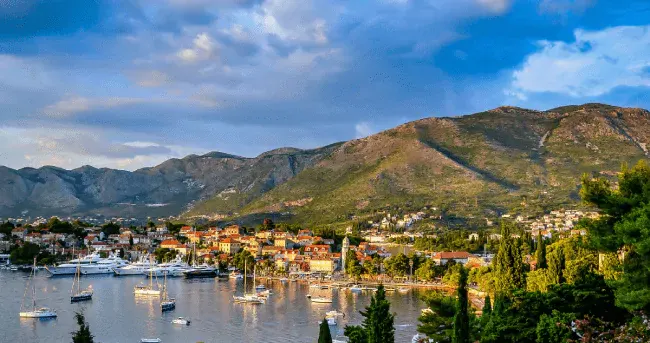
What do I have to do to get the Croatia Travel Announcement Form with iVisa.com?
It won’t be difficult at all. Complete the following steps to obtain your document straightforwardly. If you still wonder, “Do I need a vaccine to travel to Croatia?” the answer is no. There are no mandatory vaccines, but it is highly recommended to get some standard shots.
It won’t be difficult at all. Complete the following steps to obtain your document straightforwardly.
- Fill the application form we designed. Provide us information about yourself, but don’t forget to double-check it.
- After doing so, choose how fast you want to receive your document in the processing time section. Continue with the payment method, and select the one that you will use. iVisa.com accepts any of your credit/debit cards or just your Paypal account.
- Upload the required documentation and submit it.
That’s all! Our team will process your request, and the Croatia Travel Announcement Form will soon be yours.
If you want to learn more about the Croatia Vaccination Requirements: Do I need a vaccine to travel to Croatia? Keep reading because you will find out more in the following lines.
Do you want to start already? Click here and obtain your travel documents right away!
Frequently Asked Questions
Do i need a vaccine to travel to croatia.
You are advised to have some vaccines, but most are recommended to have a safe trip. The vaccines are Measles, Diphtheria, Polio, Tetanus, Pertussis, Influenza, Mumps, Rubella, and Varicella.
Do I need a COVID vaccine or vaccination certificate to enter Croatia?
COVID vaccination certificates are not mandatory to enter Croatia. WHO-approved vaccines are accepted. You are considered vaccinated if all doses of a vaccine against SARS-Cov-2 have been administered for at least two weeks before traveling.
Since information may change quickly, we advise you to follow up on the latest Croatia travel updates and/or contact your local embassy.
Do I need to take a PCR COVID-19 test before visiting Croatia?
- COVID test requirements: There are no testing requirements.
Do I have to quarantine once I arrive in Croatia?
- Quarantine requirements: There are no quarantine requirements in Croatia.
That’s what you have to know about the Croatia Vaccination Requirements.
Apply right now here .
Can iVisa.com help me with the entry requirements to enter Croatia?
If you still have the question Do I need a vaccine to travel to Croatia? in mind, remember that you don't. The only thing that you may need is a COVID-19 PCR test before your trip.
Also, we remind you that we can help you get the right documents to travel to Croatia, including the Croatia Travel Announcement Form .
What other documents do I need to enter Croatia?
To verify that information and to ensure what you will need to visit Croatia, you should use the iVisa.com visa checker tool to report to you if you have to obtain any specific travel document. Besides, it will also let you know how you can get it quickly with our service.
We can tell you that most of the time you only need a few items to apply, like these:
- Your passport .
- Your valid email address .
- Payment options including Paypal or debit/credit card
Get started here .
What are the processing times and fees for the Croatian entry document?
iVisa.com prepared the following alternatives that you can choose depending on how fast you need your document.
- Standard Processing Time: - .
- Rush Processing Time: - .
- Super Rush Processing Time: - .
Why should I use iVisa.com to get my travel documents?
There are more reasons than you think to use iVisa.com . To start with, it is a great alternative to avoid any tedious paperwork and spend hours completing a lengthy questionnaire with ambiguous language. Instead, you will only have to complete our shortened application form that will not take more than five minutes to do. You will also find clarification about the Croatia Vaccination Requirements: Do I need a vaccine to travel to Croatia? That’s why customers recommend our services, as you can see in the reviews section .
Apply right away .
How can I get in touch with you if I have more doubts about it?
You will have the chance to contact our customer service agents who will be ready to clarify all your questions about the Croatia Vaccination Requirements.They are available 24/7, so you won’t have to worry about anything else.
Start right now and get your documents with iVisa.com .
iVisa.com Recommends
Croatia is the perfect destination if you want to explore nature, landscapes, learn more about the history and have a great time with your family. If you want to visit Croatia for your future vacations, you should start creating an itinerary to start! For that reason, iVisa.com recommends a few things you should do and places you have to go during your Croatia stay. Have you heard about the Blue Cave? It is located on Bisevo Island. It is one of the most visited attractions by tourists because of its beauty. When the water shines, the cave turns in blue. It makes it magical and surprising. You would love it, but you will probably have to queue to visit it, so we recommend you go earlier to avoid a long wait. If you want to visit one of the most curious but unique museums globally, you should see the Museum of Broken Relationships in Zagreb. It is a must-see place that you cannot miss. Here you will find how many people express their old relationships and how they broke up. It is pretty impressive because of the fascinating social experience you will have there.
These are just a few places, there are even more. Get ready for your trip to Croatia and visit them all!
Related Articles
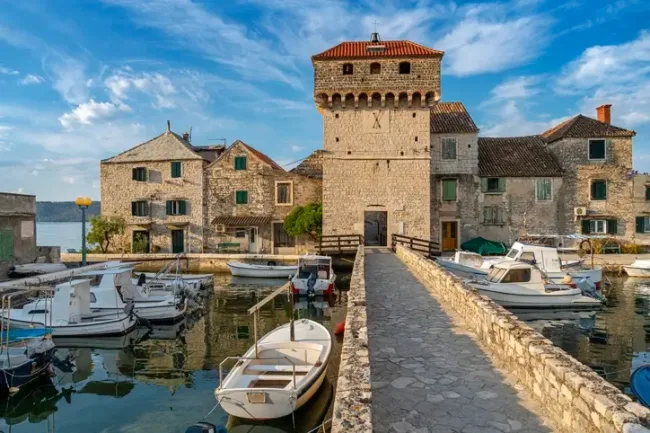
Croatia Schengen Visa for United Kingdom citizens
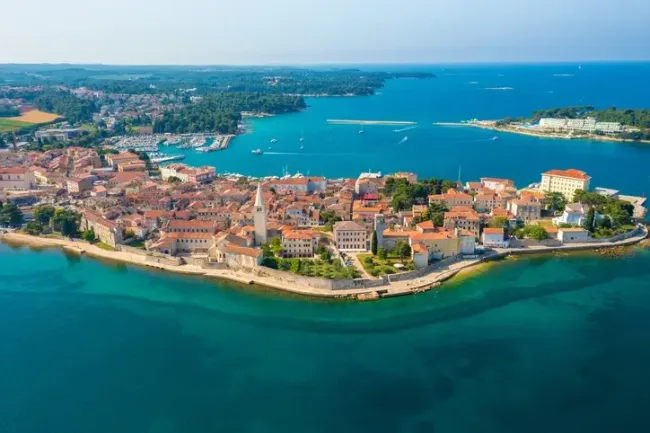
Croatia Schengen Visa for United Arab Emirates citizens
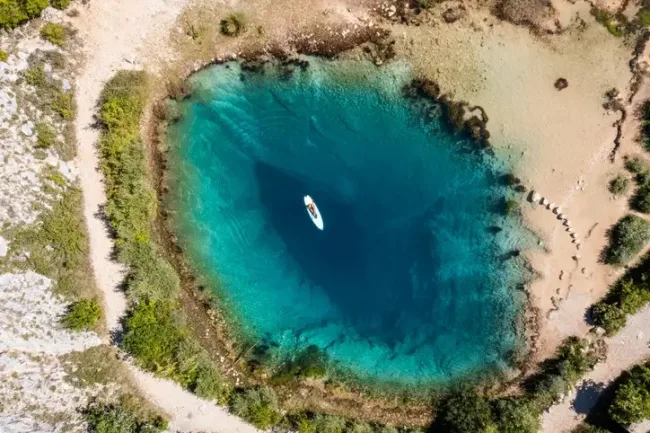
Croatia Schengen Visa for Indian Citizens
- iVisa is NOT affiliated with any government agency. This site does not provide legal advice and we are not a law firm. None of our customer service representatives are lawyers and they also do not provide legal advice. We are a private, internet-based travel and immigration consultancy provider dedicated to helping individuals travel around the world. You may apply by yourself directly on the various government websites. The source of information: https://gov.hr/en/visas/1216
Cookies on GOV.UK
We use some essential cookies to make this website work.
We’d like to set additional cookies to understand how you use GOV.UK, remember your settings and improve government services.
We also use cookies set by other sites to help us deliver content from their services.
You have accepted additional cookies. You can change your cookie settings at any time.
You have rejected additional cookies. You can change your cookie settings at any time.
- Passports, travel and living abroad
- Travel abroad
- Foreign travel advice
Warnings and insurance
The Foreign, Commonwealth & Development Office ( FCDO ) provides advice about risks of travel to help British nationals make informed decisions. Find out more about FCDO travel advice .
Before you travel
No travel can be guaranteed safe. Read all the advice in this guide as well as support for British nationals abroad which includes:
- advice on preparing for travel abroad and reducing risks
- information for women, LGBT+ and disabled travellers
Follow and contact FCDO travel on Twitter , Facebook and Instagram . You can also sign up to get email notifications for Croatia when this advice is updated.
Travel insurance
If you choose to travel, research your destinations and get appropriate travel insurance . Insurance should cover your itinerary, planned activities and expenses in an emergency.
Related content
Is this page useful.
- Yes this page is useful
- No this page is not useful
Help us improve GOV.UK
Don’t include personal or financial information like your National Insurance number or credit card details.
To help us improve GOV.UK, we’d like to know more about your visit today. We’ll send you a link to a feedback form. It will take only 2 minutes to fill in. Don’t worry we won’t send you spam or share your email address with anyone.
- KAYAK for Business NEW
Croatia Travel Restrictions
Traveller's COVID-19 vaccination status
Travelling from Canada to Croatia
Open for vaccinated visitors
COVID-19 testing
Not required
Not required for vaccinated visitors
Restaurants
Not required in enclosed environments.
Ready to travel?
Find flights to croatia, find stays in croatia, explore more countries on travel restrictions map, destinations you can travel to now, dominican republic, netherlands, philippines, united arab emirates, united kingdom, united states, know when to go.
Sign up for email alerts as countries begin to open - choose the destinations you're interested in so you're in the know.
Can I travel to Croatia from Canada?
Most visitors from Canada, regardless of vaccination status, can enter Croatia.
Can I travel to Croatia if I am vaccinated?
Fully vaccinated visitors from Canada can enter Croatia without restrictions.
Can I travel to Croatia without being vaccinated?
Unvaccinated visitors from Canada can enter Croatia without restrictions.
Do I need a COVID test to enter Croatia?
Visitors from Canada are not required to present a negative COVID-19 PCR test or antigen result upon entering Croatia.
Can I travel to Croatia without quarantine?
Travellers from Canada are not required to quarantine.
Do I need to wear a mask in Croatia?
Mask usage in Croatia is not required in enclosed environments.
Are the restaurants and bars open in Croatia?
Restaurants in Croatia are open. Bars in Croatia are .

International flights approach pre-Covid levels with new and expanded routes
Planes are parked at Incheon International Airport. [NEWS1]
Korea's international flights are projected to reach 98 percent of pre-Covid levels during this summer, with new routes established between Incheon and Croatia's Zagreb and Australia's Melbourne.
The number of international flights will increase to 4,528 per week on 231 routes between domestic airports this summer from March 31 to Oct. 26, the Ministry of Land, Infrastructure and Transport announced Thursday. This is up by 520 flights per week compared to last year's summer season,
Related Article
Korea, kazakhstan expand flight routes to strengthen bilateral ties, many more korea-mongolia flights are on their way, more korea-indonesia direct flights are on their way.
This summer's new or resumed routes are flights from Incheon to Zagreb in Croatia, Melbourne in Australia and Mexico City in Mexico. Additional routes from Korea's regional airports include Gimhae in South Gyeongsang to Bohol in the Philippines, Daegu to Zhangjiajie in China, Muan in South Jeolla to Ulaanbaatar in Mongolia, and Jeju to Xian in China.
Flight frequency expanded from last winter on routes including Poland, which increased from five to seven times a week, and the United Arab Emirates, rising from 21 to 28 times a week. These expansions came after airlines were granted widened traffic rights last year.
In addition, flights to the United States have increased from 193 to 232 times a week, while those to Europe have risen from 114 to 139 times a week.
"Just as we've recently expanded traffic rights to Indonesia, Mongolia and Kazakhstan, we intend to keep broadening our international routes to enhance citizens' travel convenience and support businesses," a ministry official said.
BY SEO JI-EUN [[email protected]]


IMAGES
COMMENTS
Most COVID-19 national health measures have been lifted in Croatia. Providing proof of vaccination, recovery from COVID-19 or negative test results is no longer required. Learn more: COVID-19 travel info Koronavirus.hr. Use of facemasks. Facemasks are required in health care and social care institutions.
PCR and/or antigen tests are available for travelers at COVID-19 Testing Locations in Croatia. As of July 2022, PCR tests cost HRK 276.56 (approximately 37.55 USD) if referred by a doctor or HRK 390 (approximately $53 USD) if not referred by a doctor. Antigen or rapid tests, on the other hand, cost approximately $20 USD.
Croatia became the latest country to eliminate all COVID-19-related entry requirements this week, allowing travelers to visit without any testing, vaccination, or quarantine rules in place.
For travelers heading to Croatia this summer, vacations have gotten much easier to manage as the tourism board announced that all remaining pandemic entry restrictions have been dropped. Following similar measures in other Mediterranean countries like Greece and Cyprus, Croatia has eliminated domestic restrictions and entry rules like the requirement to complete a passenger locator form and to ...
COVID-19-related travel and movement restrictions are still in place in Croatia. Read on to find the latest travel information as of August 6, 2021.
Bars in Croatia are . Find continuously updated travel restrictions for Croatia such as border, vaccination, COVID-19 testing, and quarantine requirements.
The basics. Croatia has had one of the highest death rates in Europe from Covid-19. While the country reopened to tourists for the 2021 summer season, it soon began see coronavirus cases rise ...
Croatia. 1. Requirements for entry from EU and non-EU countries. With regard to persons traveling to Croatia, a Decision temporarily prohibiting and restricting persons from crossing all border points of Croatia has been adopted. However, in accordance with the guidelines of the competent authorities, some exceptions have been made.
Individuals can travel to Croatia without restrictions if they are coming directly from an EU/European Economic Area country, irrespective of citizenship, if they have a valid EU Digital COVID Certificate. ... Some of Germany's 16 federal states request a negative test in addition to a vaccination or recovery certificate and may require a ...
Reissued with obsolete COVID-19 page links removed. Exercise normal precautions in Croatia. Read the country information page for additional information on travel to Croatia.. If you decide to travel to Croatia: Enroll in the Smart Traveler Enrollment Program to receive Alerts and make it easier to locate you in an emergency.; Follow the Department of State on Facebook and Twitter.
07/05/2022 July 5, 2022. The pandemic has changed travel in Europe, which continues to be subject to restrictions as the omicron variant takes hold. These are the current rules in Croatia.
The basics. Croatia has had one of the highest death rates in Europe from Covid-19. While the country reopened to tourists for the 2021 summer season, it soon began see coronavirus cases rise ...
Gudelj also reports that visitors prefer villas and vacation rentals to hotels, and are opting for long-term stays that incorporate work and leisure time. As a result, an increased number of visitors list reliable Wi-Fi access as a must-have. Croatia is currently seeing much fewer travelers. Credit: 2020 Jordan Womack.
The Latest Updates and Requirements for Travel to Croatia. Apr 23, 2021. Croatia started welcoming fully vaccinated U.S. Travelers on April 1. Credit: 2021 Croatian National Tourist Board. Editor's Note: The COVID-19 policies and procedures listed below are up-to-date as of press time. However, we encourage all readers to head to each ...
Reissued with obsolete COVID-19 page links removed. Exercise normal precautions in Croatia. Read the country information page for additional information on travel to Croatia.. If you decide to travel to Croatia: Enroll in the Smart Traveler Enrollment Program to receive Alerts and make it easier to locate you in an emergency.; Follow the Department of State on Facebook and Twitter.
There are no COVID-19 testing or vaccination requirements for travellers entering Croatia. Passport validity requirements To travel to Croatia, you must follow the Schengen area passport requirements.
COVID-19 travel restrictions were lifted in Germany. Travellers are not required to provide proof of vaccination, recovery from COVID-19 or a negative test result. Learn more: Federal Ministry of Health _____ You can find the latest information on air travel regulations for this country on the IATA website.. You can also find information about your passenger rights on our portal for citizens.
Yes, some vaccines are recommended or required for Croatia. The National Travel Health Network and Centre and WHO recommend the following vaccinations for Croatia: COVID-19, hepatitis A, hepatitis B, rabies, tickborne encephalitis and tetanus.
While in Croatia: avoid showing signs of affluence and carrying large sums of cash. ensure that your belongings, including your passport and other travel documents, are secure at all times. don't leave luggage unattended at airport check-in or ticket counters, car rental desks or hotel lobbies.
COVID vaccination certificates are not mandatory to enter Croatia. WHO-approved vaccines are accepted. You are considered vaccinated if all doses of a vaccine against SARS-Cov-2 have been administered for at least two weeks before traveling.
Still current at: 29 March 2024 Updated: 4 December 2023 Latest update: Information on border checks upon entry to Slovenia ('Entry requirements' page)
Bars in Croatia are . Find continuously updated travel restrictions for Croatia such as border, vaccination, COVID-19 testing, and quarantine requirements.
Korea's international flights are projected to reach 98 percent of pre-Covid levels during this summer, with new routes established between Incheon and Croatia's Zagreb and Australia's Melbourne.
Slovenia then would send them back to Croatia, until eventually, they found themselves back in Bosnia, which is notorious for its dire conditions. In January 2021, an Italian court ruled the ...